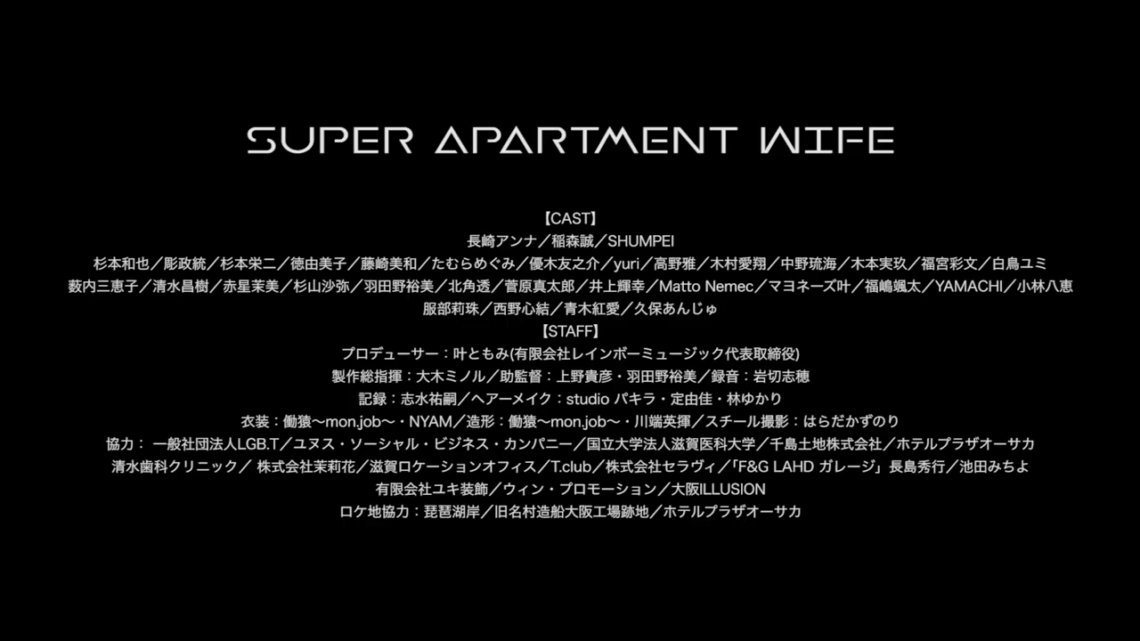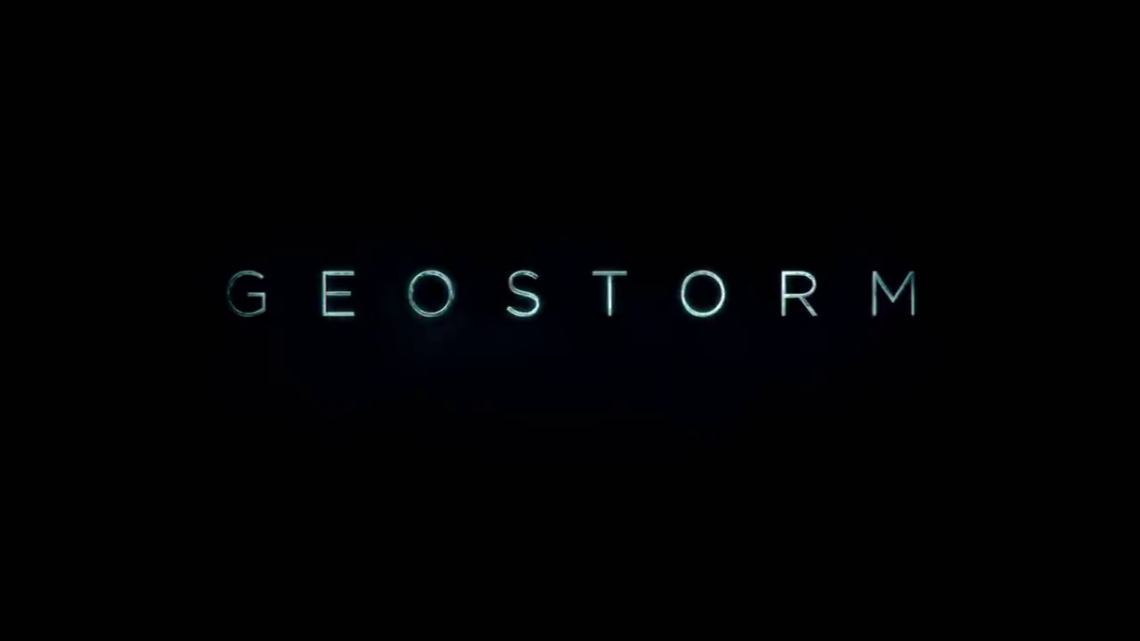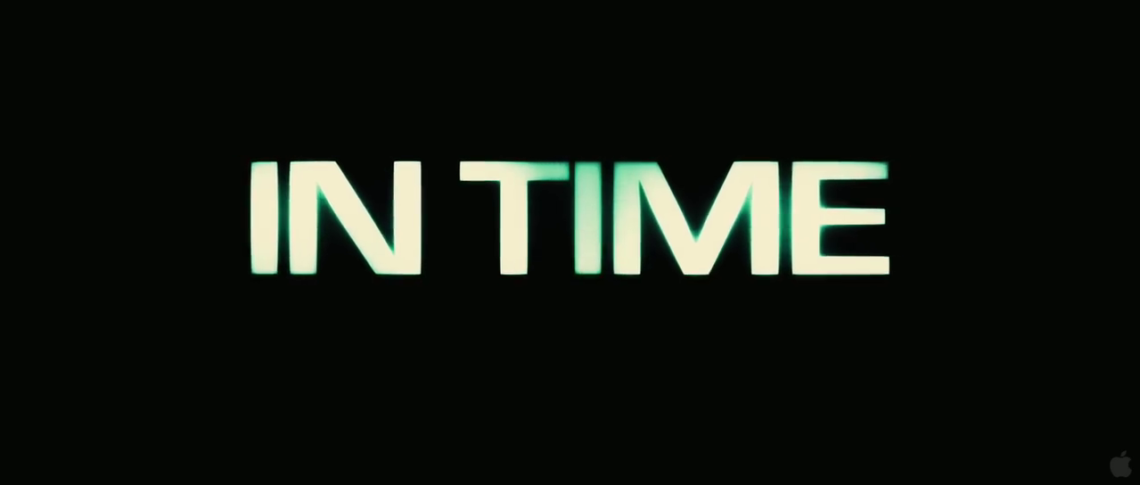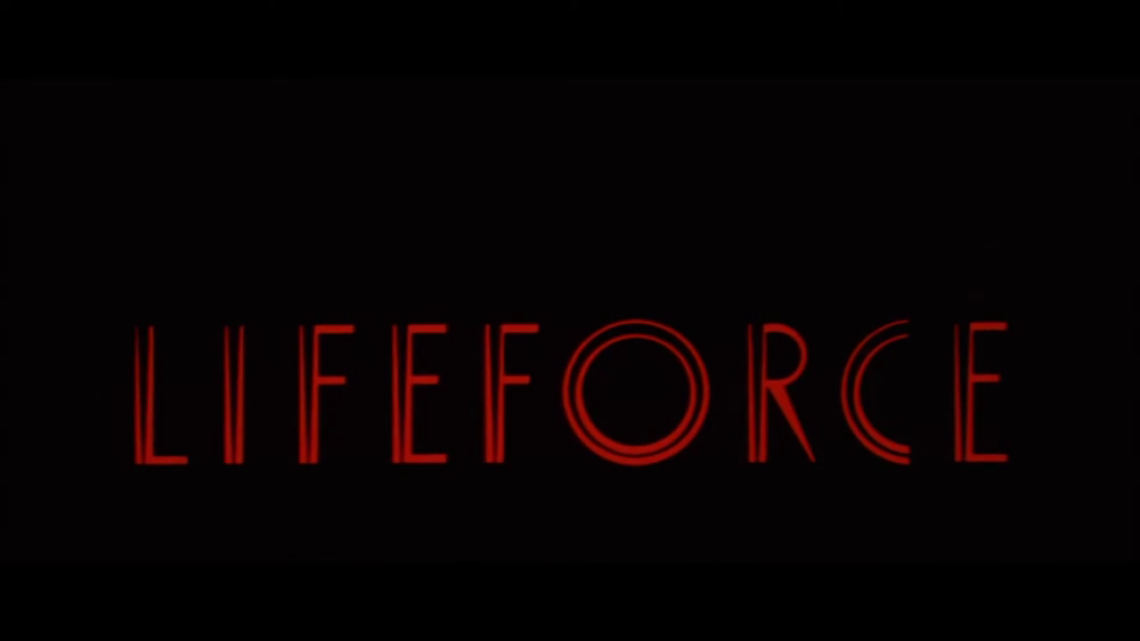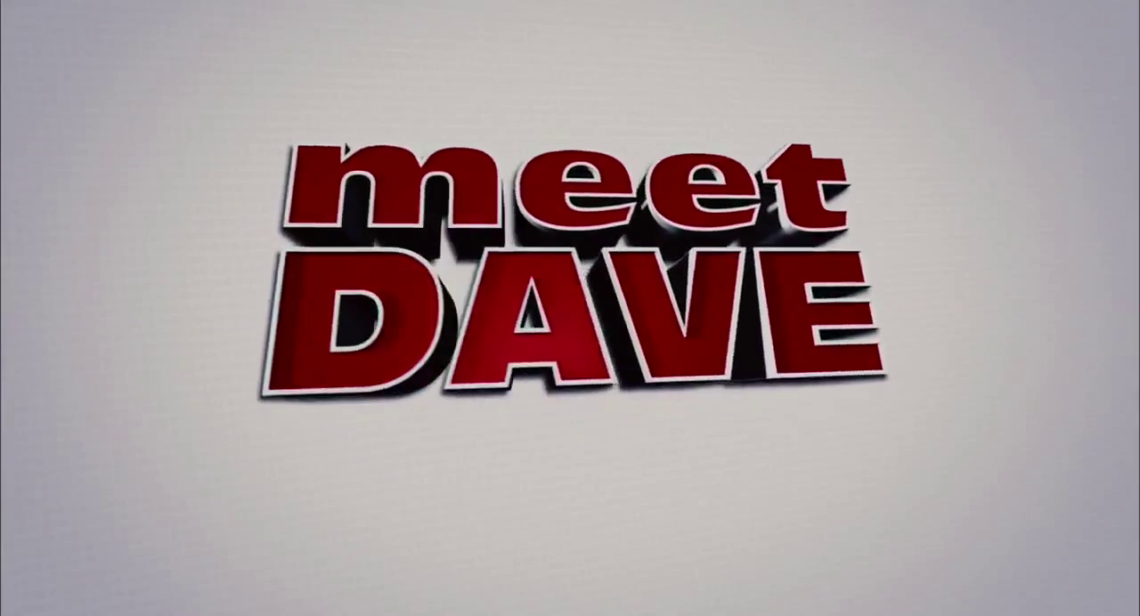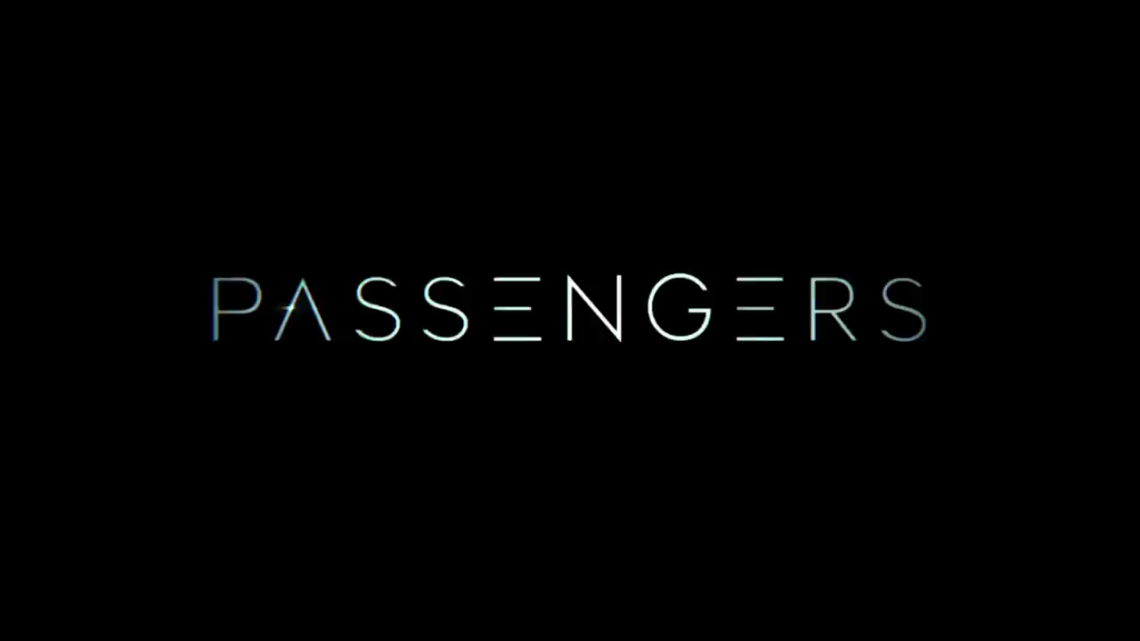-
#603 – Super Apartment Wife (2021)
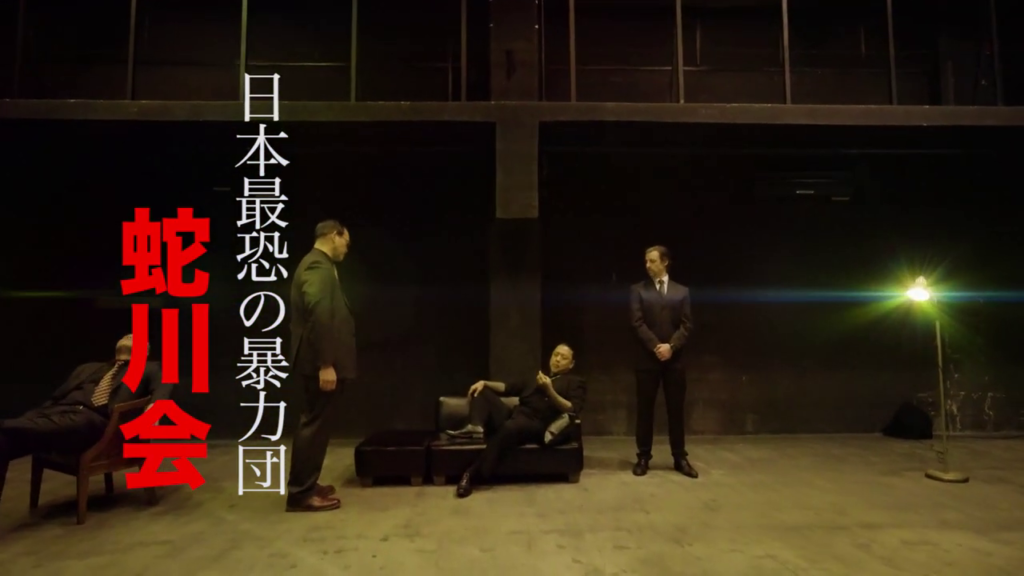
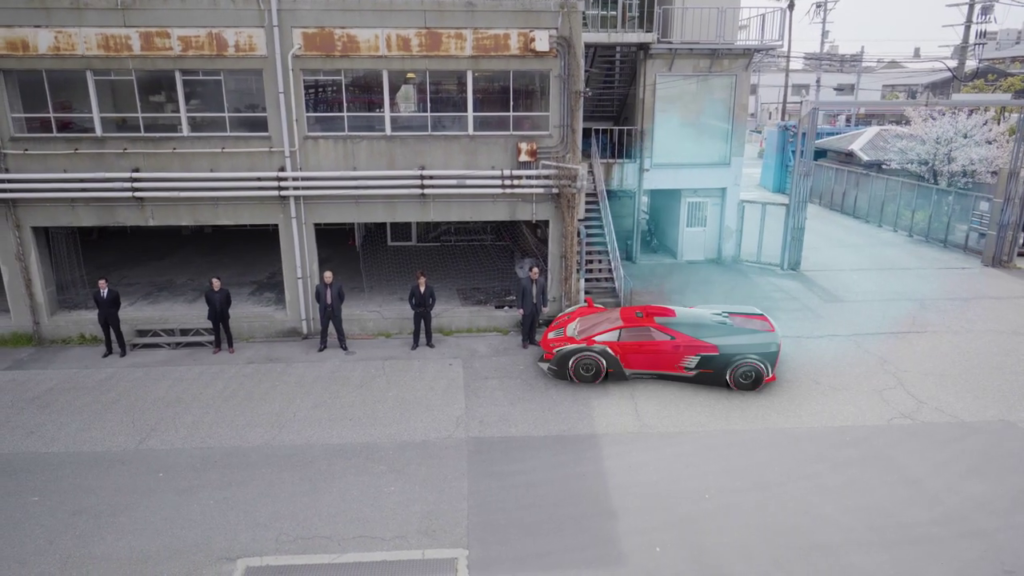

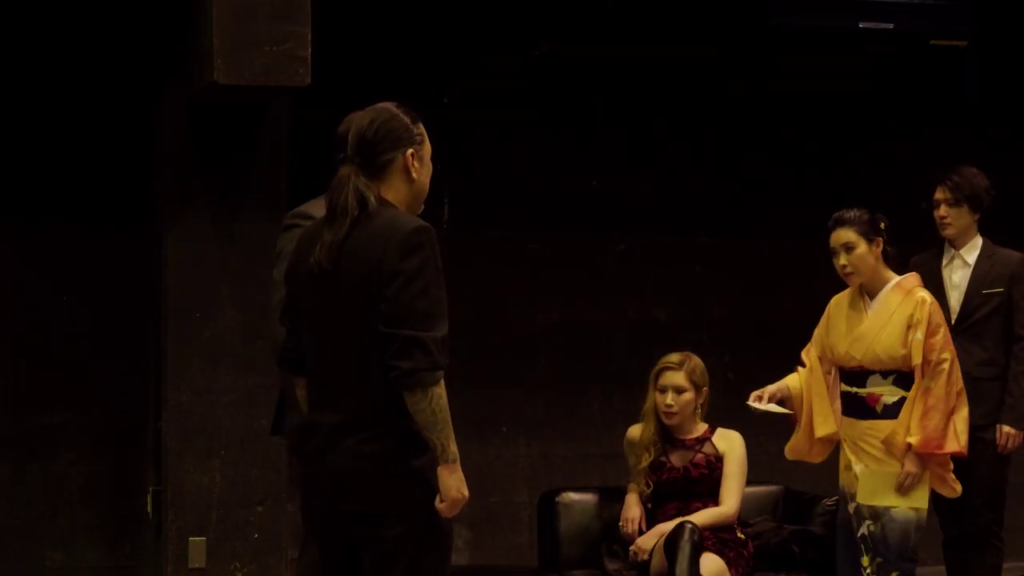

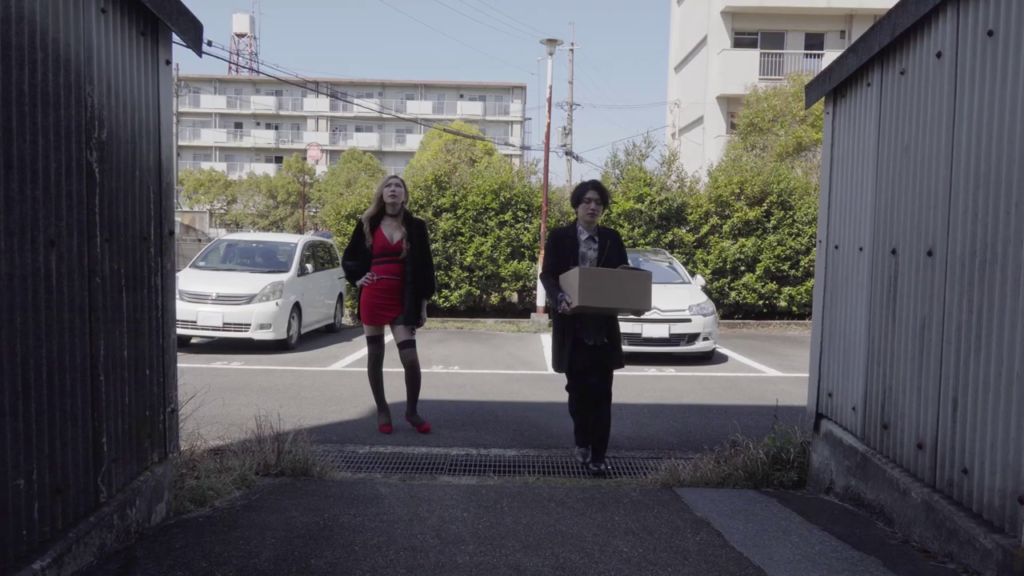

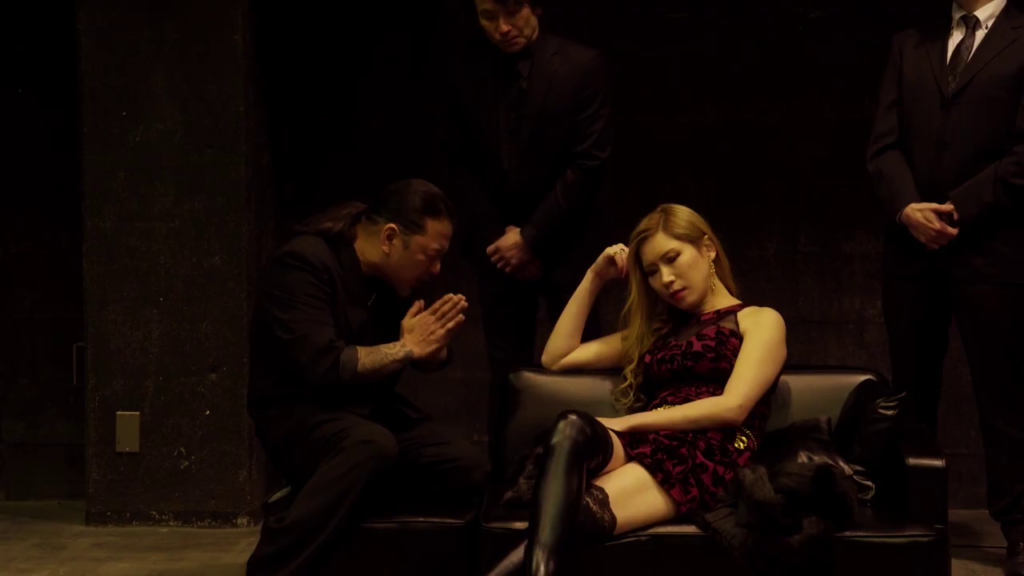
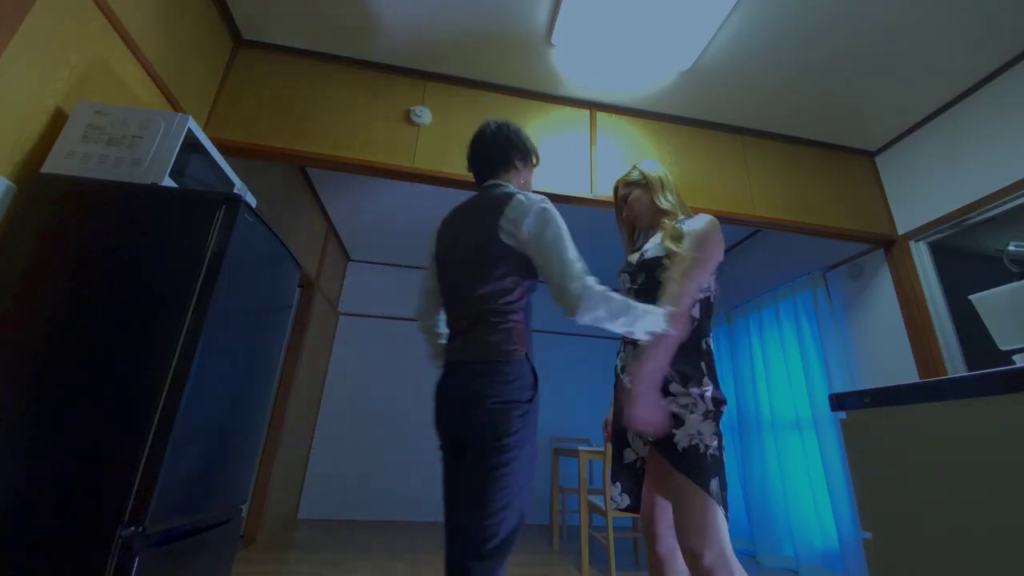
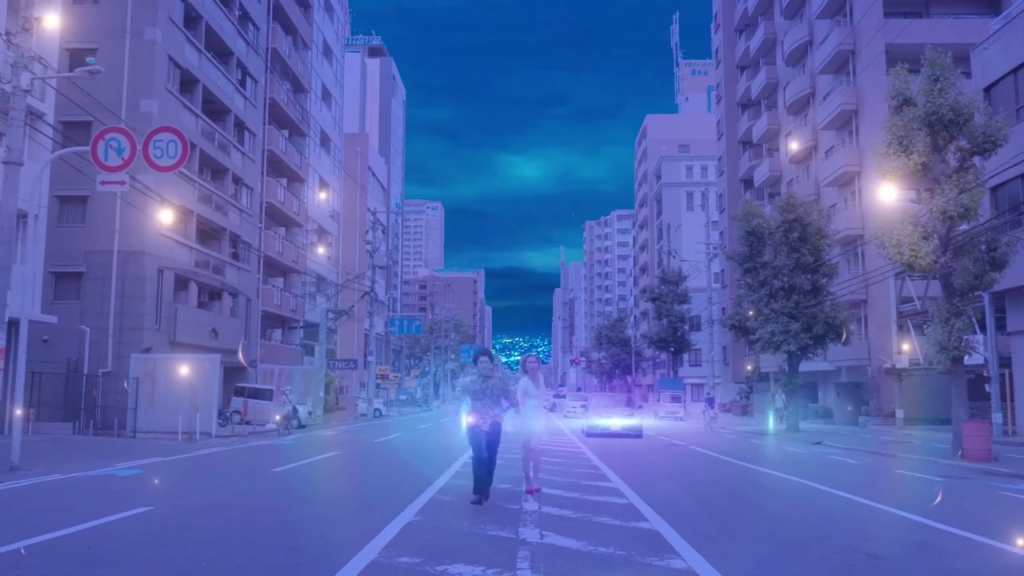

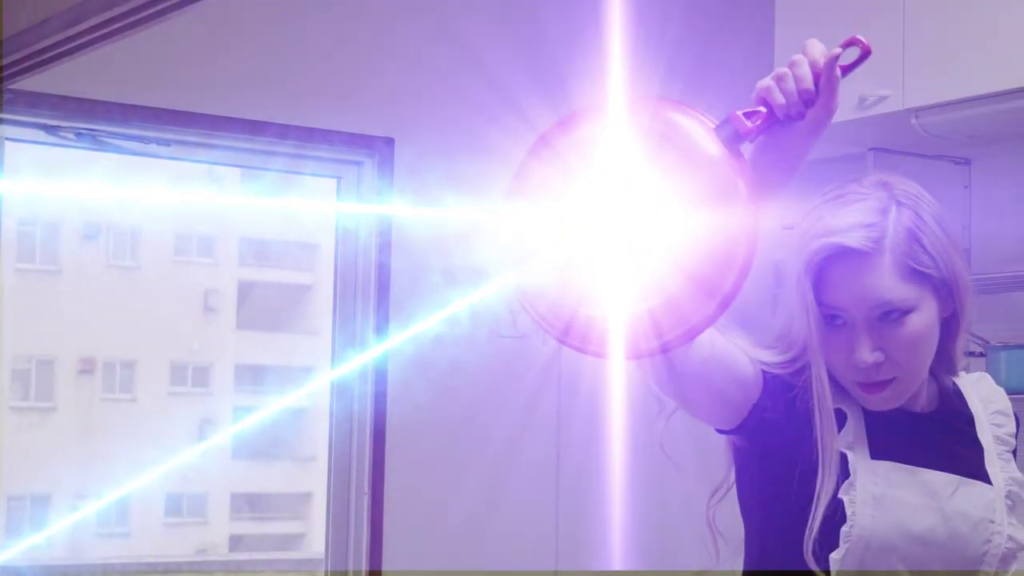
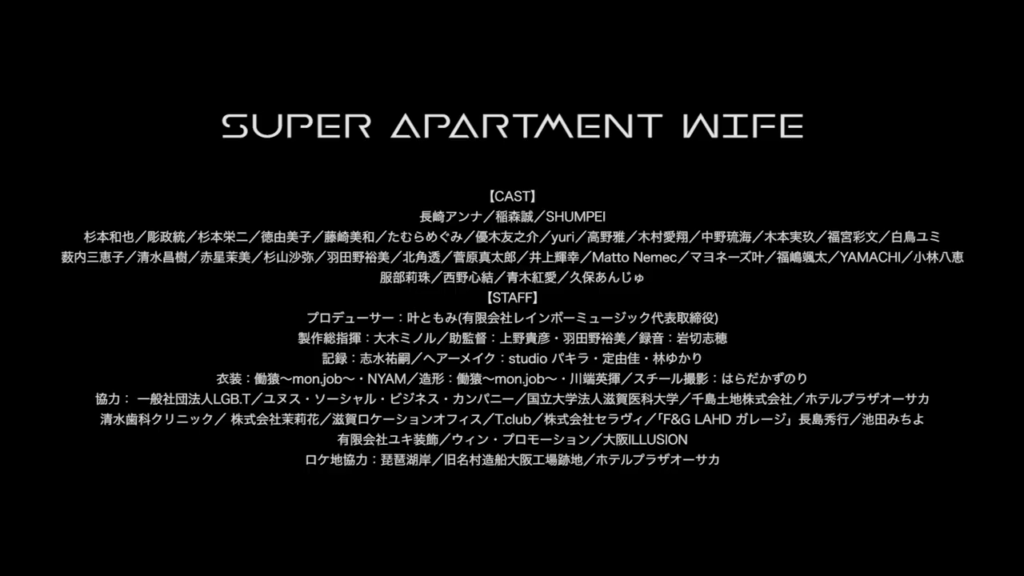
Super Apartment Wife (2021)
Film review #603
Director: Anna Nagasaki
SYNOPSIS: A yakuza boss needs to divert attention away from his mistress, Anna, as his wife is becoming increasingly suspicious of him. She is ordered to move in with newcomer Sho Nagasaki, and pretend to be his partner. However, the relationship becomes complicated when the yakuza boss has to engineer their “break up,” as well as the small matter of Anna being the daughter of an evil God who wants to wipe out humanity…
THOUGHTS/ANALYSIS: Super Apartment Wife is a 2021 sci-fi film. Starring, written, and directed by Anna Nagasaki, the plot concerns a yakuza boss who needs to hide his mistress from his suspicious wife. They plan for a newbie, Sho Nagasaki, to pretend to be her partner, and have her move in with him to try and fool the private detective the boss’s wife has hired. A simple enough plot, which I’m sure has the potential for some comedy or typical romance stuff, but there’s no real sense of what the film should be: I think it’s mostly meant to be taken seriously, but the stunted and sparse dialogue from the main characters makes it difficult to get to grips with what they are thinking. The whole film seems to have very little idea what it is doing, with Nagasaki never having written, directed, or starred in a film (her background is as an influencer). I think there’s a germ of an idea in here somewhere, but it fails to blossom in any way.
If you think the plot is already quite odd, then we haven’t even addressed the really weird stuff yet: it turns out that Anna is the daughter of “Darkness of Love” (it’s hard to translate the Japanese name), who is basically evil God, who wants to destroy humanity and replace them with more interesting species or something. Stranger still, it is implied this God (who looks like he belongs in The Matrix) is the Christian God, as he talks about creating Adam and Eve and whatnot. He visits Anna and reveals who he is, and tries to tempt her to embrace her evil powers and destroy humanity. We get there’s something special about her earlier because of these odd flashbacks of her Mother telling her not to get emotionally involved and accidentally unleash her demon powers or whatever, and there’s also this odd scene at a dentist as a flashback, which I can’t remotely fathom why it is in there or what it is meant to signify. So anyway, Anna eventually is consumed by her evil powers as she thinks Sho is seeing another woman, who is actually part of the yakuza boss’s plan to break up the couple so his wife doesn’t get suspicious, and this other woman is actually one of God’s other children, and maybe the yakuza boss’s wife is too? Honestly, I got completely lost at this point, as the film turns into this battle for the Earth at it’s climax, and everyone duking it out with God-like powers, and the yakuza trying to shoot them. The whole experience is just so surreal and chaotic I’m still at a lost of how to process it. Fortunately (?) the film does have a happy ending, as Anna and Sho have a kid and live happily ever after or something, but again, this just doesn’t really follow on from the madness that ensues at the climax; it’s just a bunch of half-cooked ideas thrown together with barely any structure to make them stick.
What makes this film feel truly amateur is the production and effects: a lot of the film looks like it was set on a stage at a local theatre, or an industrial estate just around the corner. The CGI is all very basic 3D models, and the greenscreen effects are clearly not done right, as they bleed into the actors constantly, The whole film (if this even counts as a film) is a half-baked mess of ideas, with zero chemistry between the characters to create any sense of romance or drama, and a bizarre angle concerning an evil God wanting to wipe out humanity that adds a completely different level of incomprehensibility. It clearly has no budget and a severe lack of expertise, so you can’t be too hard on the end product based on what it was working with, but there are some things which would have been easily improved. I can see what it’s trying to do, but every step it takes towards it is misplaced and ends up somewhere completely different. Probably worth a watch only if you really want to indulge in something completely insane and devoid of sense.
-
#602 – Geostorm (2017)
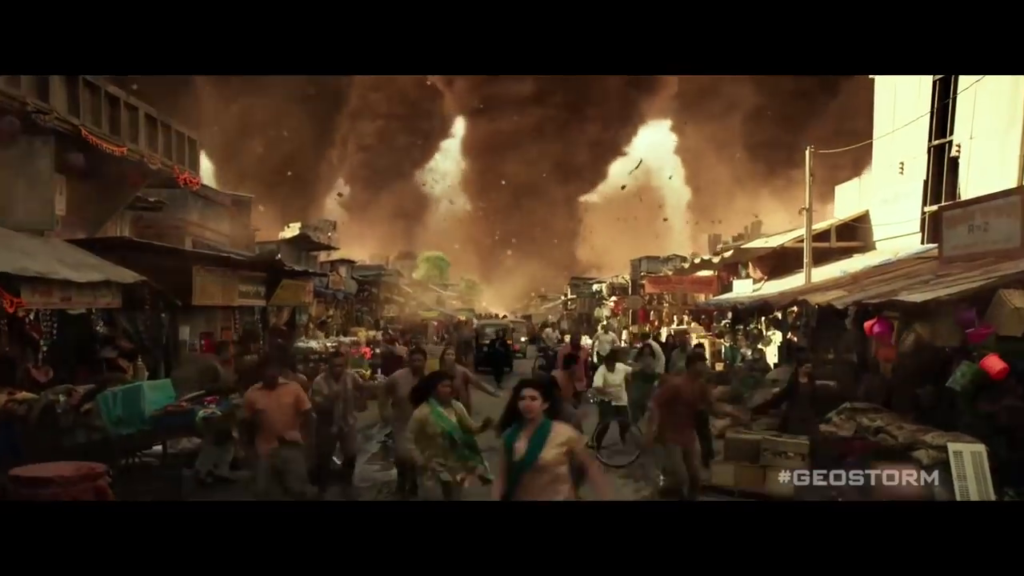
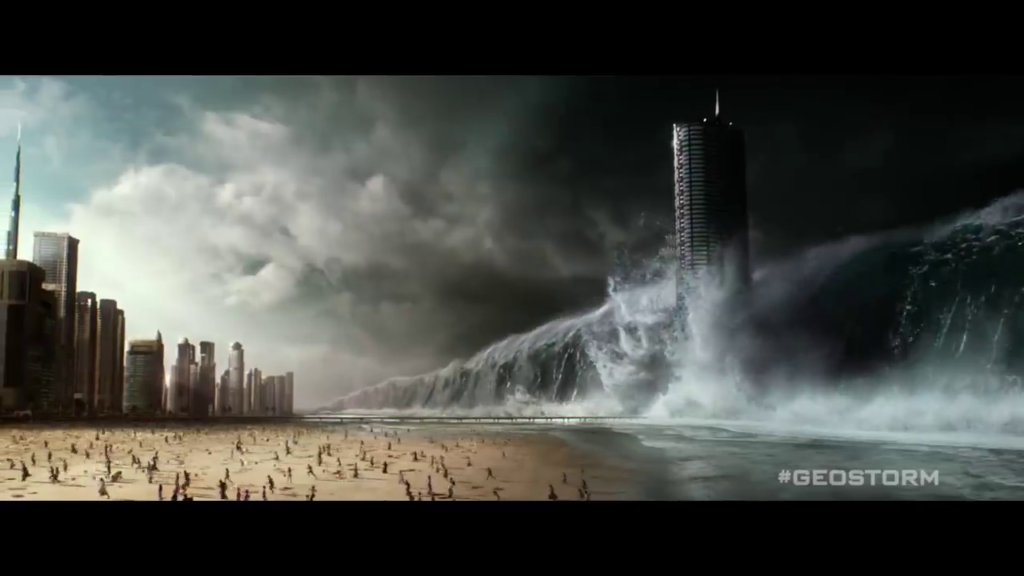
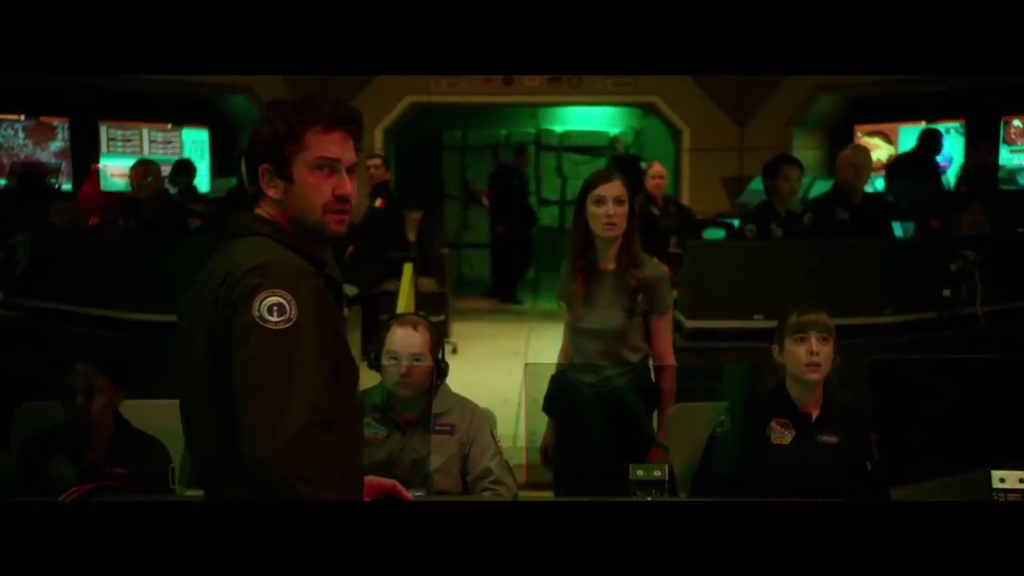
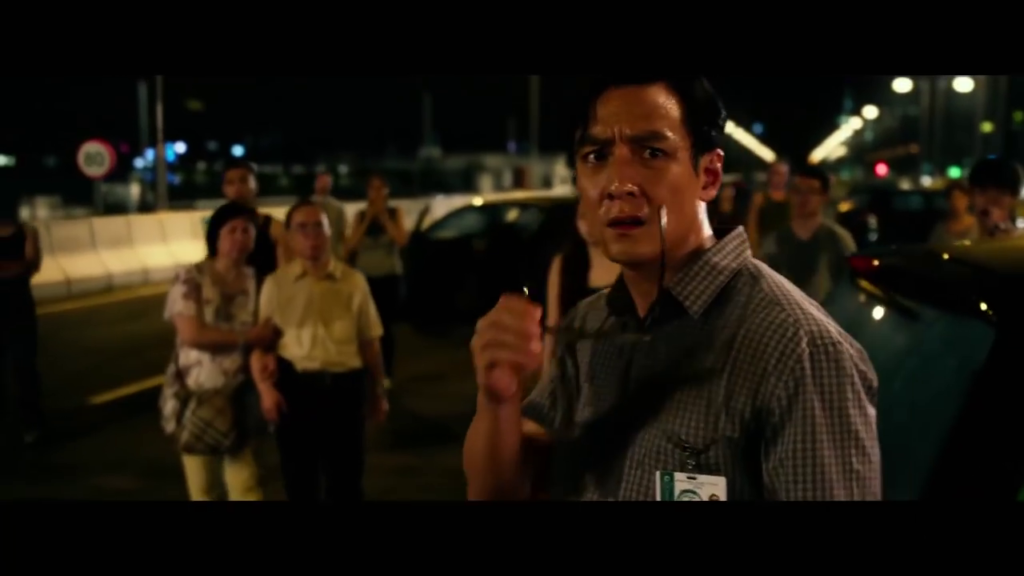
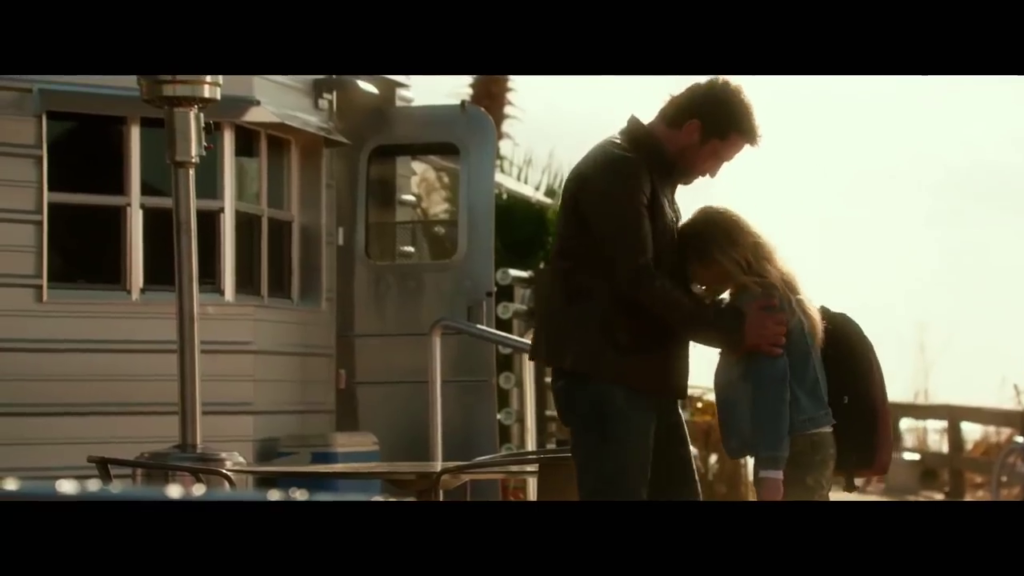
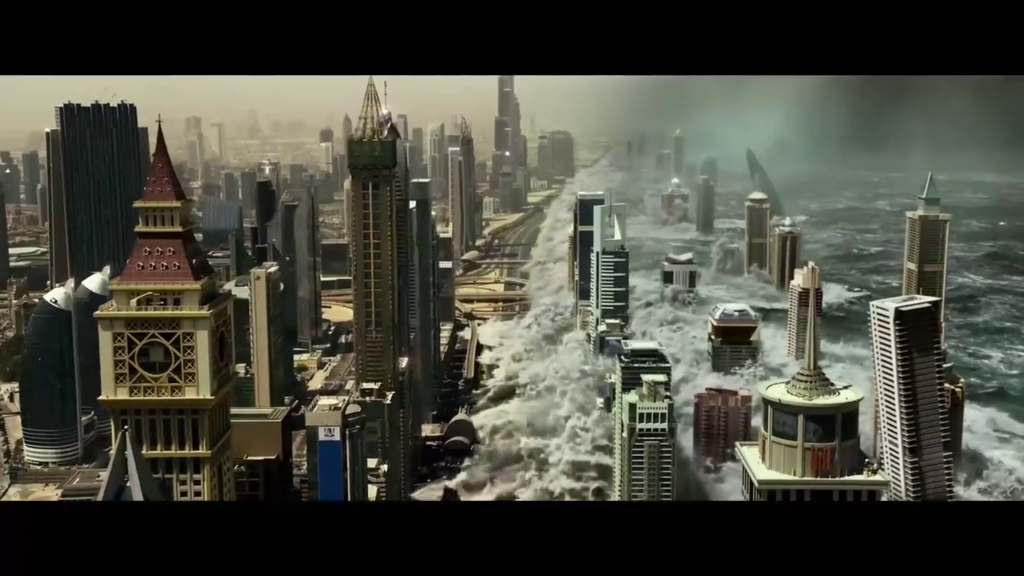
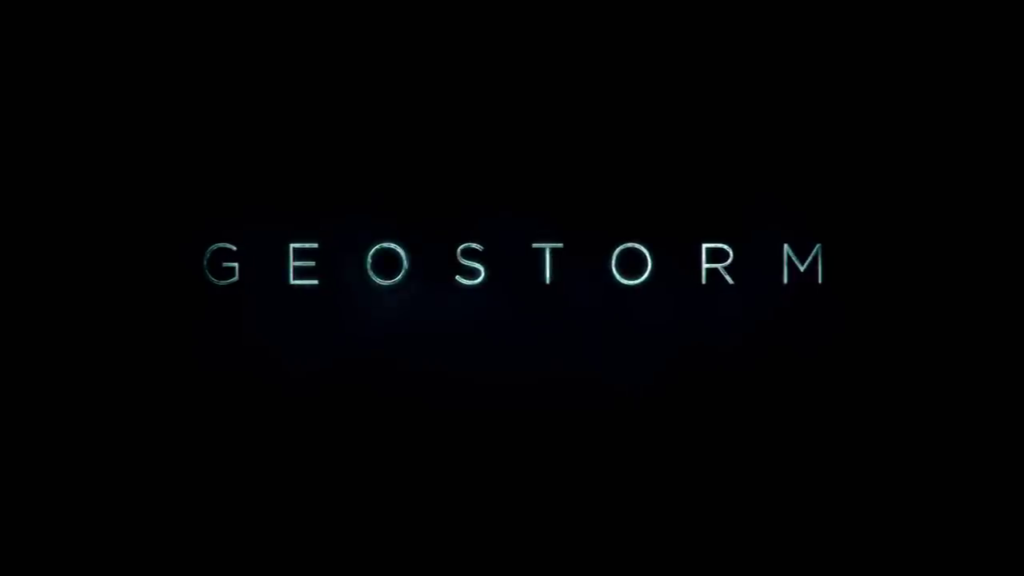
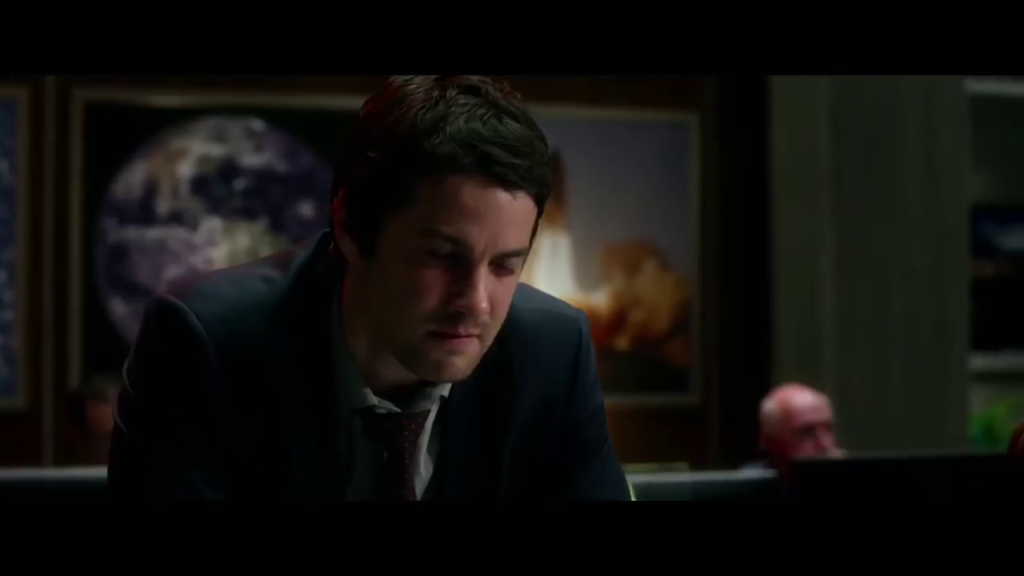
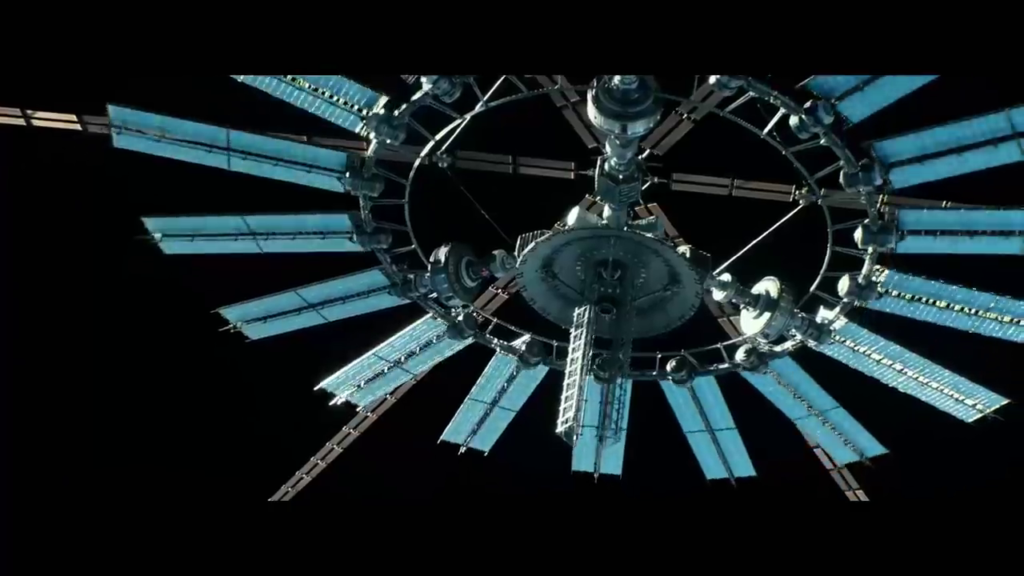
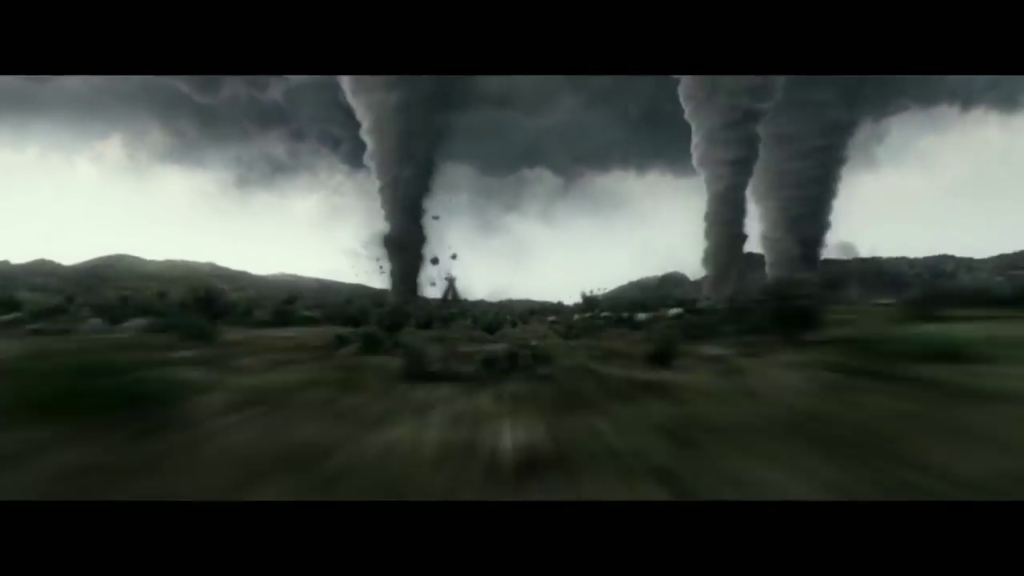
Geostorm (2017)
Film review #602
Director: Dean Devlin
SYNOPSIS: In the future, a global satellite network controls the Earth’s weather to prevent it from developing into extreme storms that would cause mass destruction. When the satellite starts to malfunction, the scientist who developed the system is called back to investigate and fix it, he finds that the malfunctions may actually be sabotage…
THOUGHTS/ANALYSIS: Geostorm is a 2017 sci-fi film. The film starts off with a narration that could probably have served as a film in itself: Earth is plagued by extreme storms that threaten mass destruction, and to counter this, scientists led by Jake Dawson develop a satellite network codenamed “Dutch Boy” to disperse these storms. Jake is removed from the project after he activates Dutch Boy without approval to disperse a storm over Shanghai. A year later, his brother, working for the U.S. government, persuades Jake to return to investigate a malfunction onboard Dutch Boy, which he suspects is sabotage, leading to a whodunnit scenario before more disaster. All of these elements are very formulaic, and offer no originality. Being primarily a disaster movie, the story is secondary in favour of the big destructive scenes of cities being laid to waste against the force of nature, but weak CGI dilutes this aspect too, leaving a film is very little going for it. There’s a little bit of mystery, disaster, and drama, but nothing is developed strongly enough to serve as the film’s backbone, thus leaving a bit of disconnected mess.
Despite all this, it’s certainly not an unwatchable film: it’s entertaining enough, as long as long as you don’t over think it. Character development is sorely lacking, so you’re never really getting a sense of peril for the situations they are in. The overarching mystery does try and lead you astray, but the actual solution isn’t really all that exciting to present that much of a twist. It’s a bad film, mired by poor effects and an obvious inexperience on the part of Dean Devlin in his directorial debut, but it’s non-offensive, and you can sit through it if you switch off your sense of reason off for an hour and forty minutes.
-
#601 – The Penitent Man (2010)
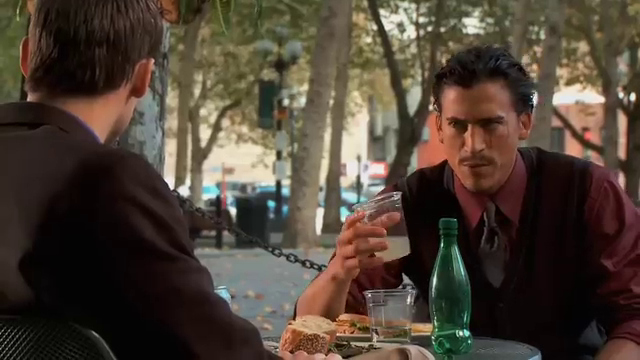

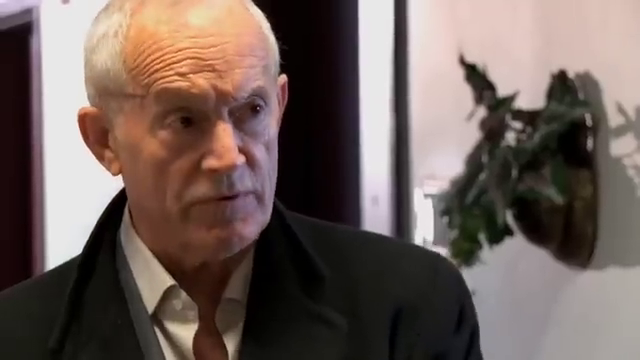
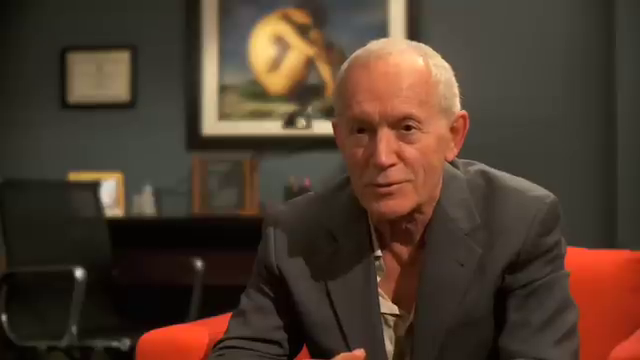

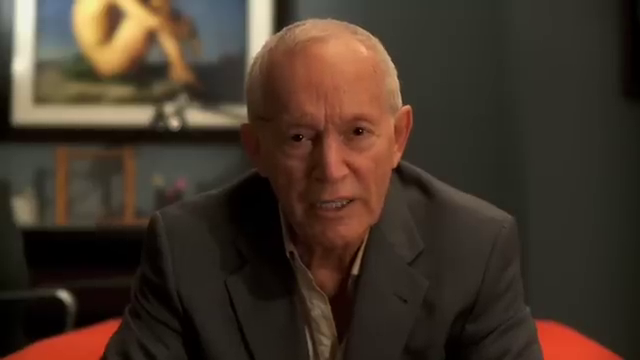
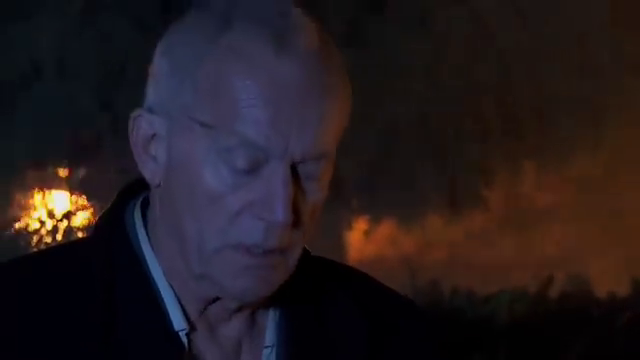


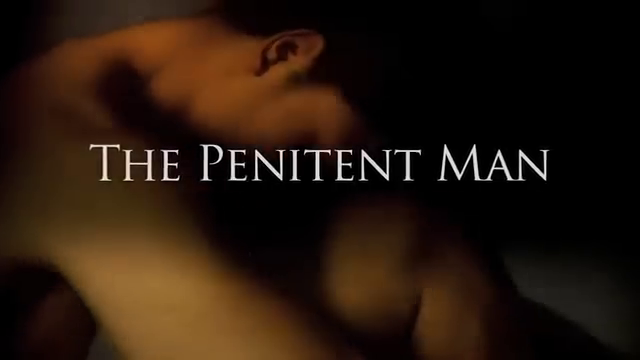
The Penitent Man (2010)
Film review #601
Director: Nicholas Gyeney
SYNOPSIS: A psychologist with troubles with his finances and marriage is visited by a long term patient who makes a startling claim – he is from the future, and he has travelled back to prevent the discovery he made from ever being used, as it brought about the destruction of society as we know it…
THOUGHTS/ANALYSIS: The Penitent Man is a 2011 film. Psychologist Dr. Jason Pyatt is visited by a patient, Mr. Darnell, who he has been sporadically over the past year. He confides in the doctor a secret: that he is from the future, where an invention he made to look through time has caused the collapse of society, and he has travelled back to prevent his discovery from being made. The film is essentially a drama film, with the two main characters sitting and talking, followed by two other characters sitting talking…essentially, there is a lot of dialogue in this film. You may be constantly waiting for something to happen, but nothing ever does. If the dialogue was captivating or explored ideas or concepts with some depth, it would be interesting, but it barely scrapes the surface of its ideas; instead just leaving things as generalities. The fact that nothing is really shown could generate an interesting sense of ambiguity about whether the man is telling the truth, but in the opening scene we see him in the future and time travel, so it just eliminates that avenue for the film to build on.
The whole film feels very amateur-ish, making it feel like someone saw The Room and took it as a “how-to” for filmmaking. The aforementioned scenes of flat dialogue don’t really develop the characters or story, and there’s a severe lack of purpose or direction. The film is also extremely heavy-handed with it’s imagery, and is obsessed with close-ups. For example, the beginning is filled with close-ups of wedding rings on the characters fingers and other paraphernalia to establish them, but it just doesn’t seem really necessary. Another issue is that the plot is entirely predictable, and unfolds exactly as you think it will: you’ll easily guess who Mr. Darnell really is, and who his friend was who tried to stop him. Again, there’s a heavy-handedness and inexperience that destroys any sense of tension or subtlety.
Lance Henriksen as Mr Darnell is the only real good actor in this film, but even then, he feels misdirected, and working with a poor script. his scenes with Dr Pyatt (Lathrop Walker) feel so uneven because of the chasm of talent between them. Scenes between other characters are completely devoid of interest, and no one seems to know what to do with the camera during these long scenes, and it sometimes just focuses on a character who is being spoken to, which is very odd. It’s easy to sum up this film as a very amateur and misguided attempt at being a smart film: the acting is dire, the camerawork lacks direction, the plot is predictable, the imagery is heavy-handed, and again, it really feels like someone took The Room as a guide for how to make films. There’s nothing really redeemable about the film, or anything interesting to take away from it, as it’s dull characters and completely predictable plot just leave you waiting for the film to end.
-
#600 – In Time (2011)
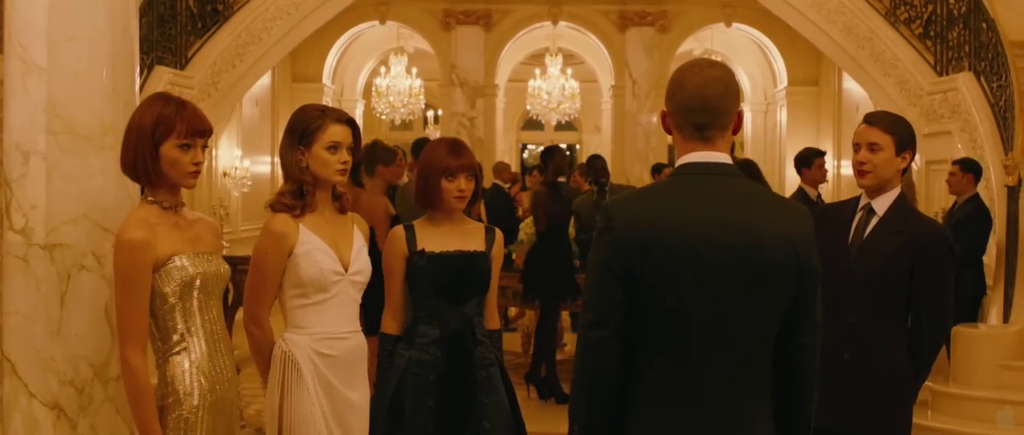
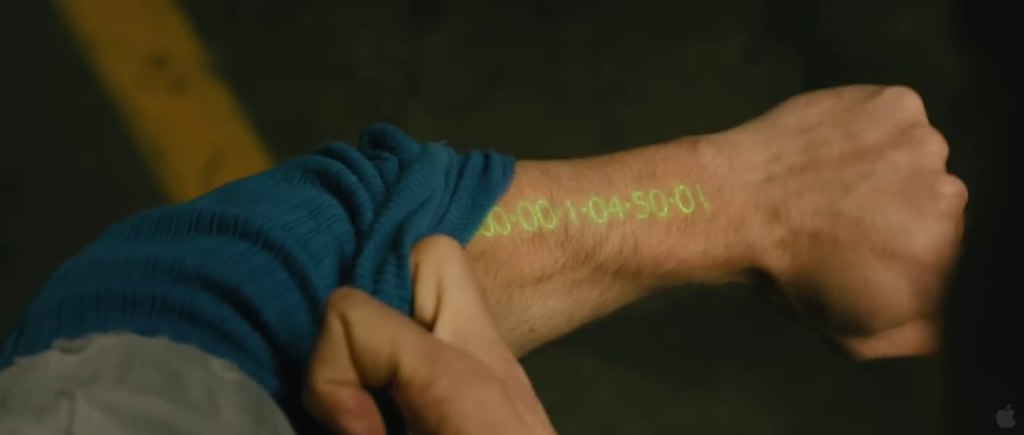
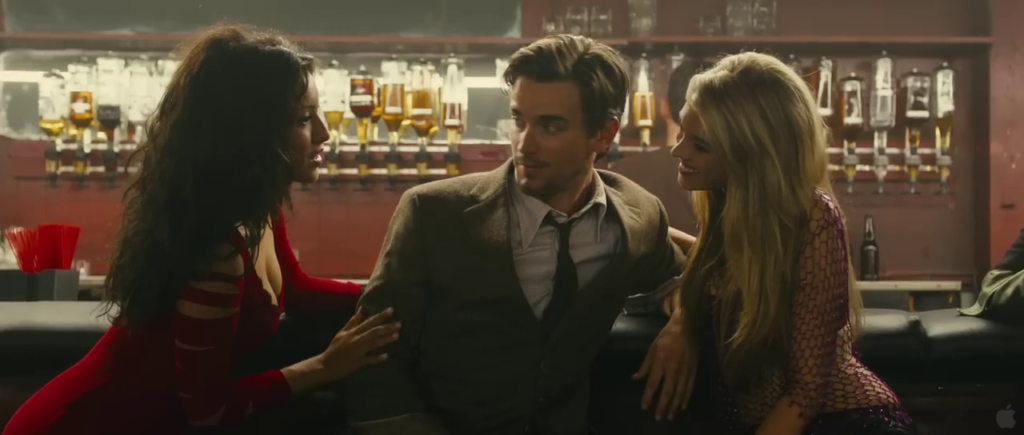
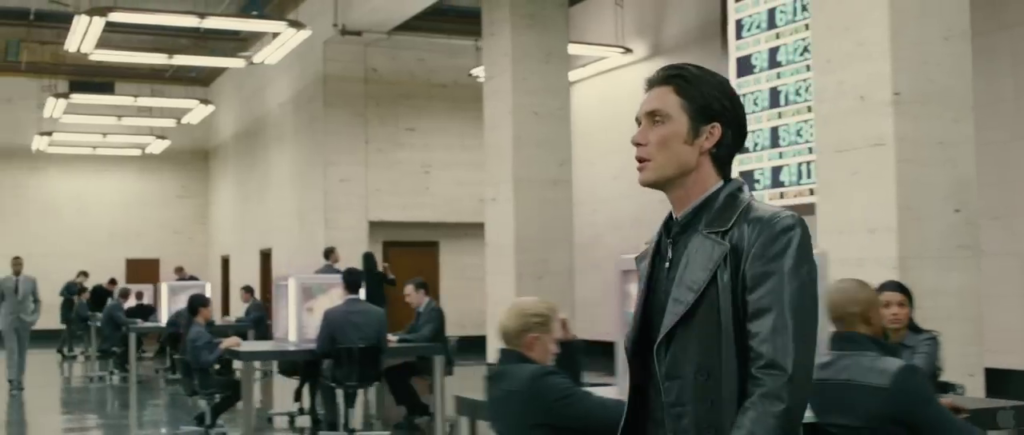
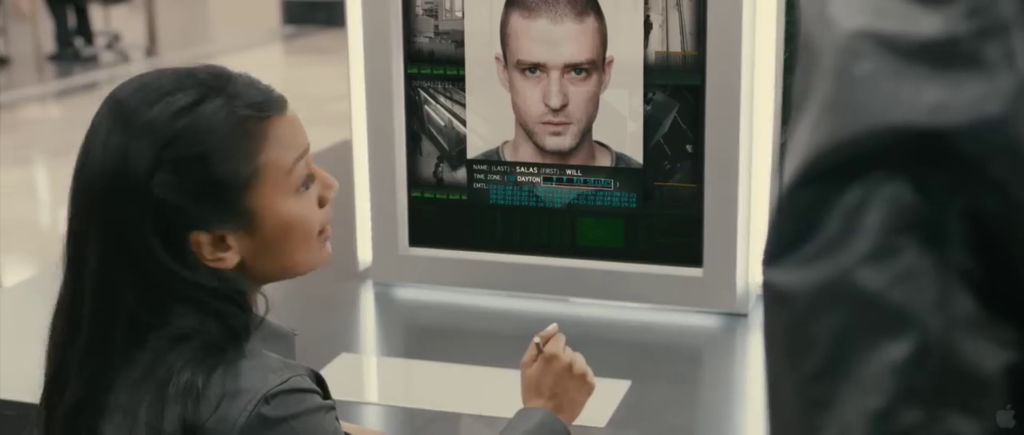
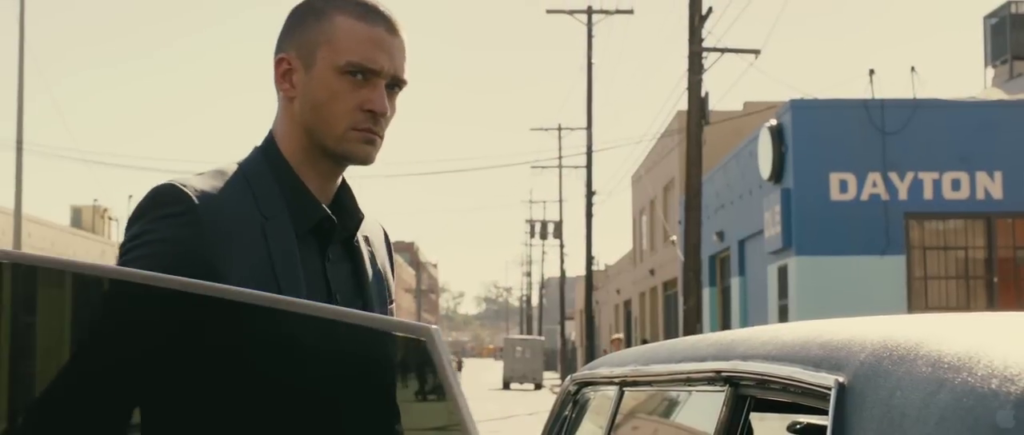
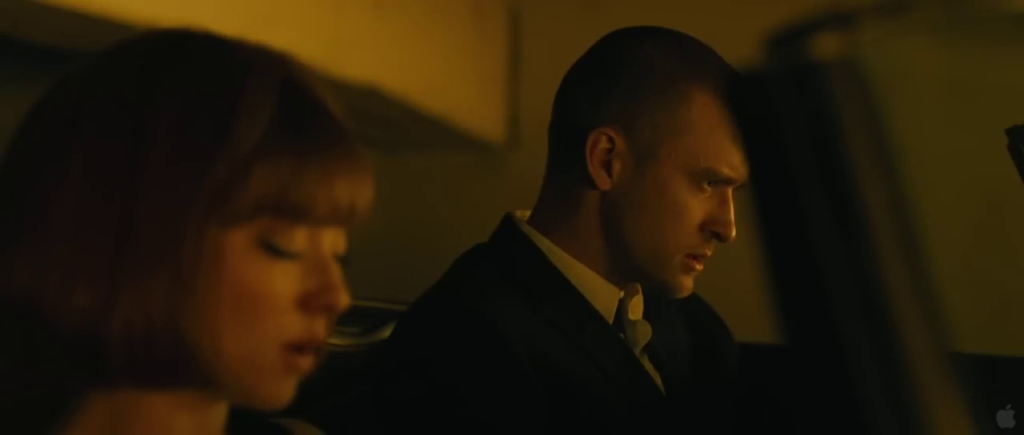
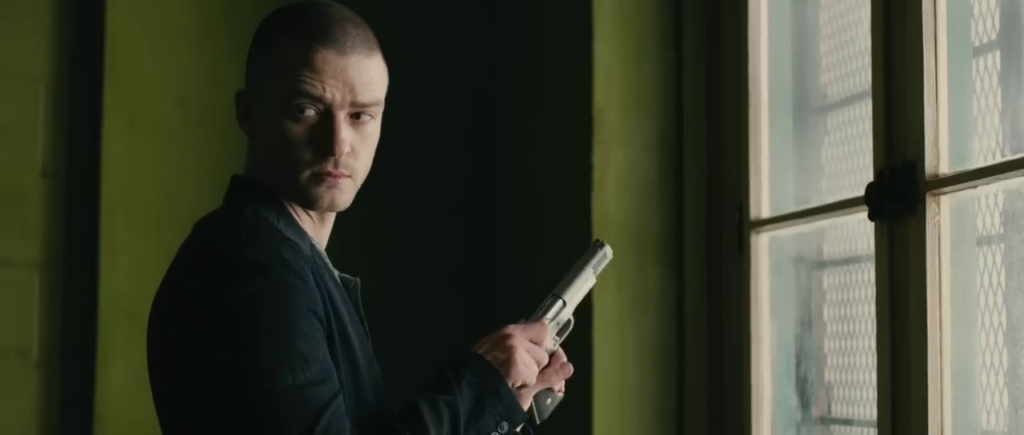
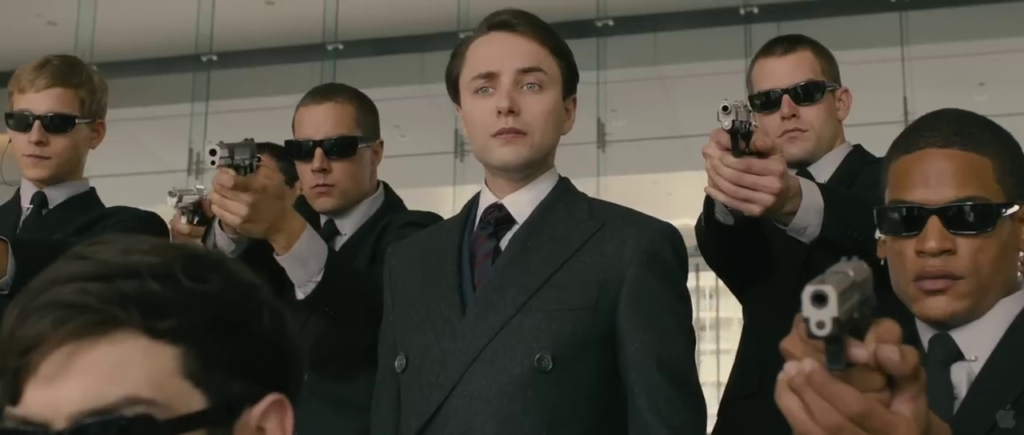
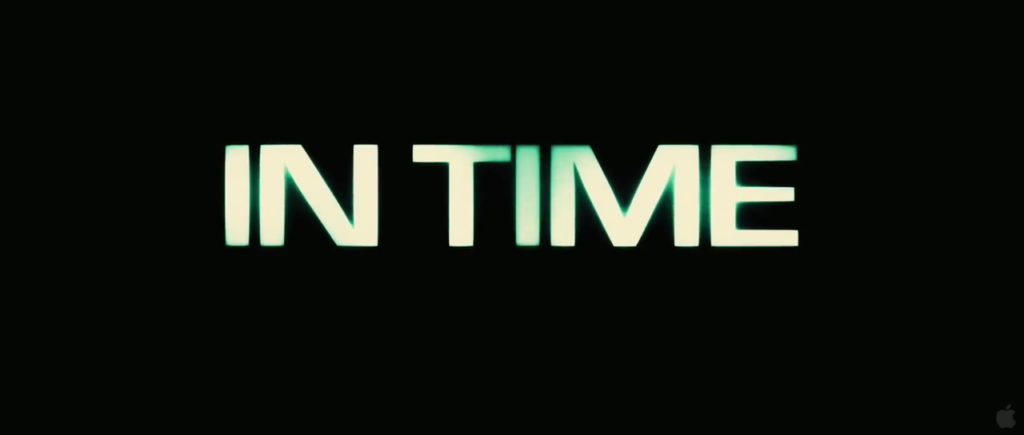
In Time (2011)
Film review #600
Director: Andrew Niccol
SYNOPSIS: In the future, time is the only currency: people stop aging at the age of twenty five, and after, must work to earn time on their lives, as well as using time to pay for everything else. Will Salas works in the ghetto, earning just enough to live day-to-day, when he meets a man at a bar who has over a century left on his life. The man, who has apparently been living over a hundred years, has grown tiring of living, and transfers all his remaining time to Will. Faring that having so much time could upset the balance of the economy, Will becomes hunted by Timekeepers whose job it is to restore order, while Will decides to use his new found time to fleece the system for everything it has…
THOUGHTS/ANALYSIS: In Time is a 2011 sci-fi film. Set in the future of 2169, time has become the only currency, where people stop aging at 25, and must get extra time on their lives by working for it, but also must pay for everything with that same time as well. It’s a fairly interesting set-up, although I don’t think overly novel. The downfall of the film is that it in no way explores the concept it leads with. At the start, we get a scene between main character Will Salas and who we are lead to believe is his wife, but turns out to be in fact his Mother, because everyone stops aging at the age of twenty-five, you would have no idea how old someone was. This seems like some thing that has potential to be explored, but it barely gets a mention. Another big part of the film is the portrayal of the gap between those who have to earn time day-by-day to keep from dropping dead, and those who have hundreds of years on their clock so they can practically live forever, thus creating a dystopia of inequality. The trouble here is, this doesn’t really seem any different than the systems of inequality we have today. Obviously science-fiction works best when it serves as a reflection of contemporary society in some way, but because the film’s concept is not developed or intertwined more closely with the core story, it becomes fairly irrelevant. We are often told about this system of inequality, and how people in the ghetto are fighting to survive, but every scene there is fairly calm and quiet, whereas you would expect people to be constantly fighting each other for seconds or minutes, particularly if they were at the end of their time. Therein lies the problem: the film tells you about the world, but what is shown rarely matches up to that, thus the film really tries to force feed it’s world to you, rather than letting viewers immerse themselves in it to explore for themselves. There’s also the fact that the future is hardly any different than our present, save for the time-based currency: all the cars, buildings etc. are things you would find in any city, and again, you’re just not immersed in this setting.
The plot proper concerns Will Salas (Justin Timberlake), a worker in the ghetto who meets a man from the rich zone with over a hundred years on his clock, who has grown tired of living after over a century. He gives Will all his time while he is sleeping, leaving just enough to throw himself of a bridge when it runs out. When Will’s mum dies as well from running out of time, Will decides to use his newfound time to take everything from the rich. It’s a bit of a leap from Will just trying to survive to becoming a revolutionary, as we aren’t really given any idea about his backstory or anything, and it feels like there’s a bit of a gap between suffering a loss to deciding to tear down the whole system. Will buys his way into the rich zone, and with the help of Sylvia Weis (Amanda Seyfried), the daughter of a rich banker whom Will initially kidnaps, the two embark on a Bonnie and Clyde style set of raids and robberies to distribute time from the elite to the people of the ghetto, disrupting the time-base economy, all the while being pursued by the timekeepers, who enforce the system. Given that the aim given in the film is for Will to bring down the whole system, the film instead just focuses on a constant chase between Will and authorities, never advancing the story in any significant way. In fact, the end of the film just states that they can’t up-end the system, and seemingly ends with the pair on their way to rob another time bank and just do what the film already showed ad infinitum. There’s also a small plot point that hints about Will’s Dad being killed for doing the same thing that he is doing, but this is mentioned off-hand once or twice and never becomes relevant to anything, which makes you wonder why it is mentioned at all.
Overall, In Time offers an interesting set-up, but ultimately fails to do anything with it. We are left with a world very similar to our own, and one that is too similar and thus unengaging, as the film constantly avoids developing it with any detail, or exploring any implications from its core concept. The characters are fairly bland, and Justin Timberlake’s performance hasn’t improved since his role in the sci-fi film Southland Tales, which had the same problems there. Unresolved plotlines, a lack of direction, and an absence of depth leave the viewer with a film that’s simple enough to follow and a bit of style, but wholly lacking in substance and direction.
-
#599 – Lifeforce (1985)
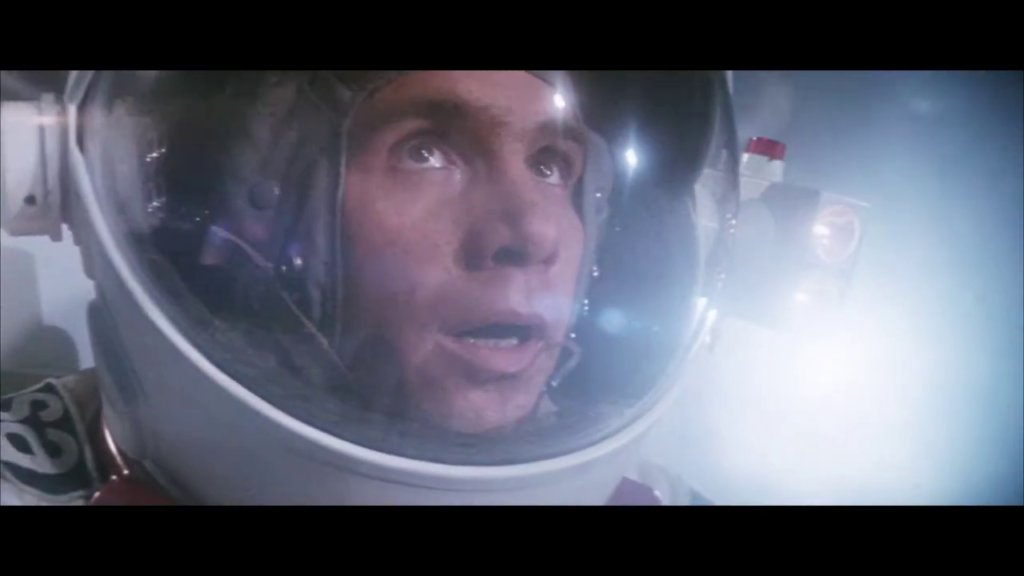
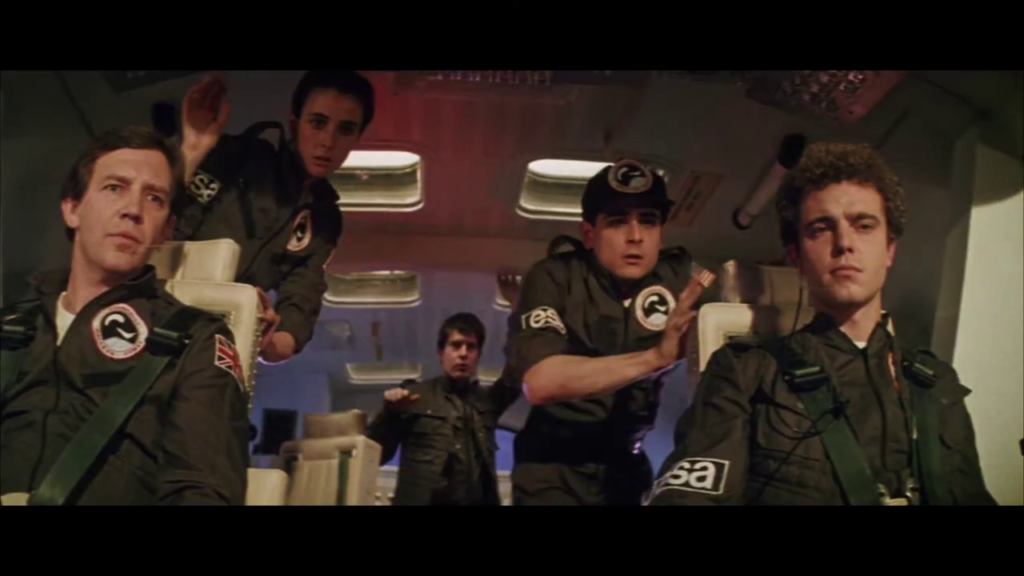
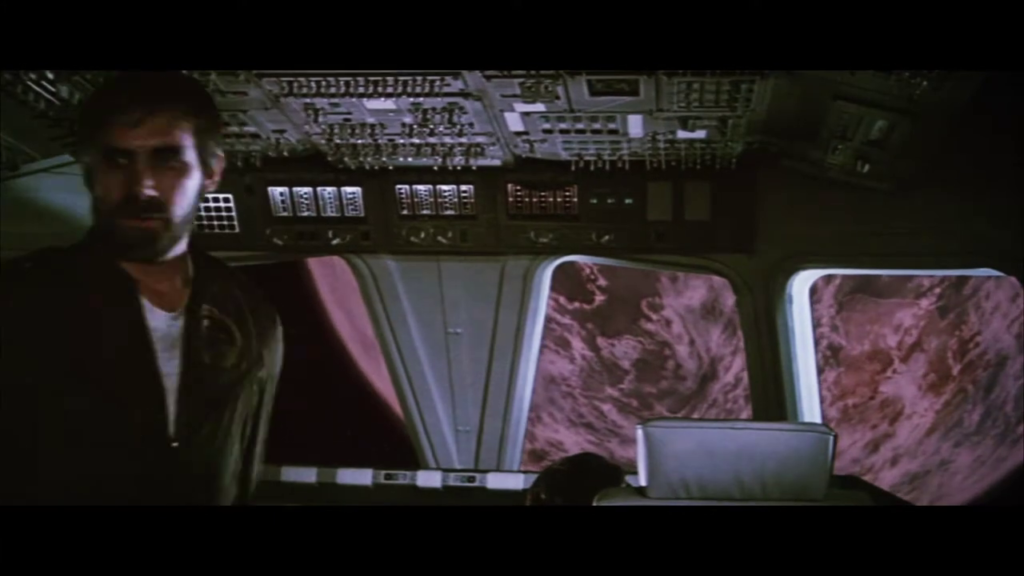
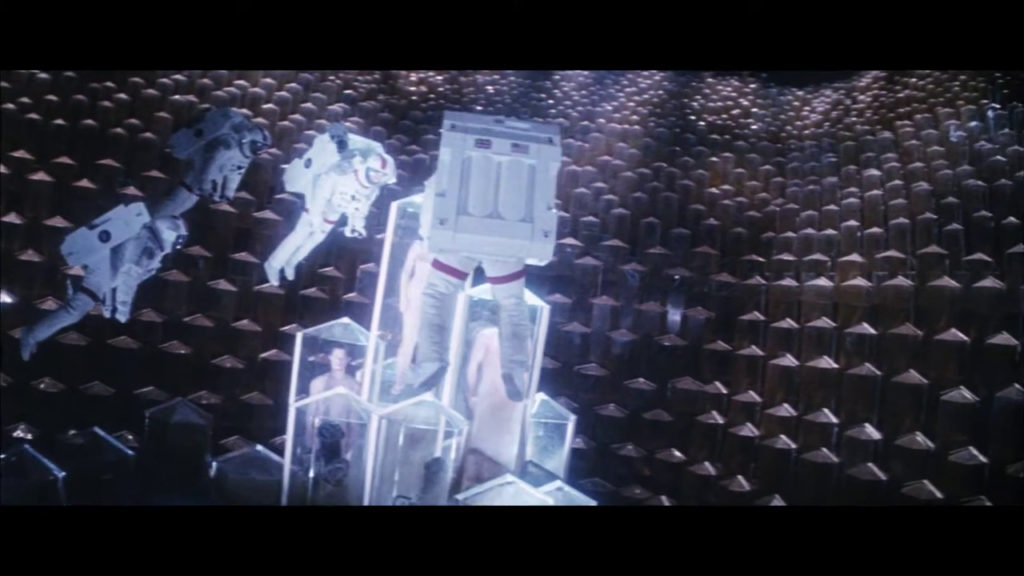
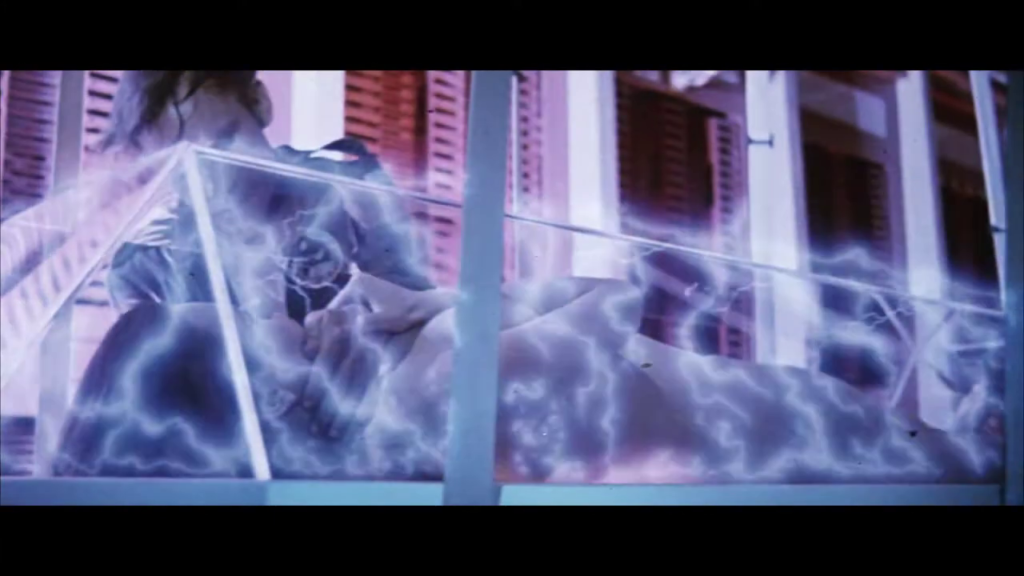
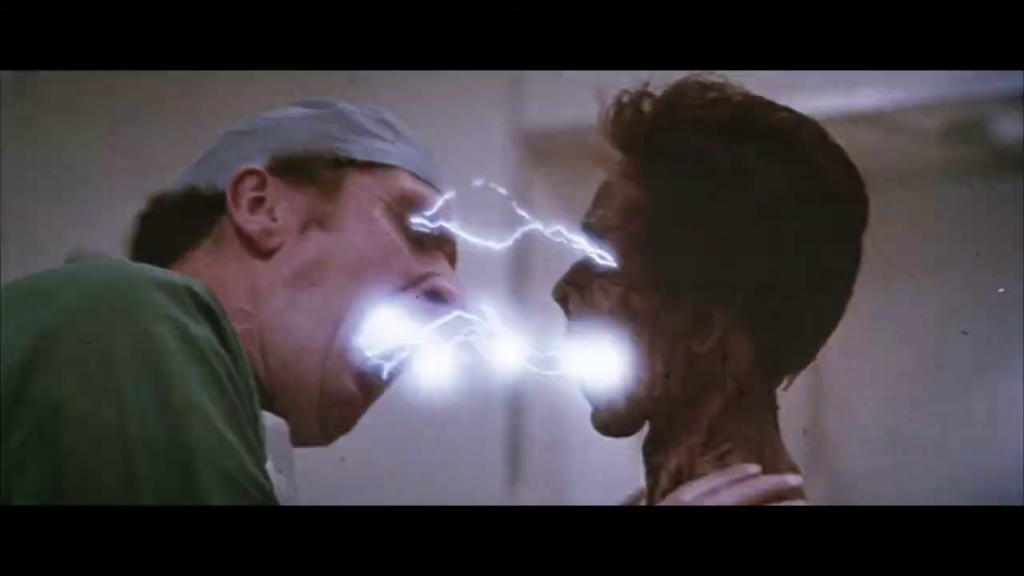
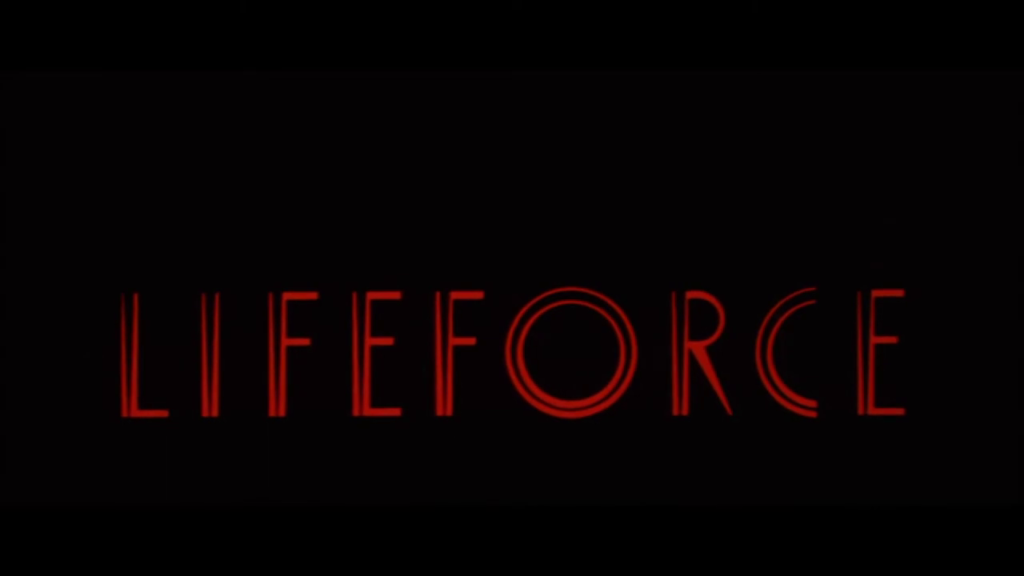
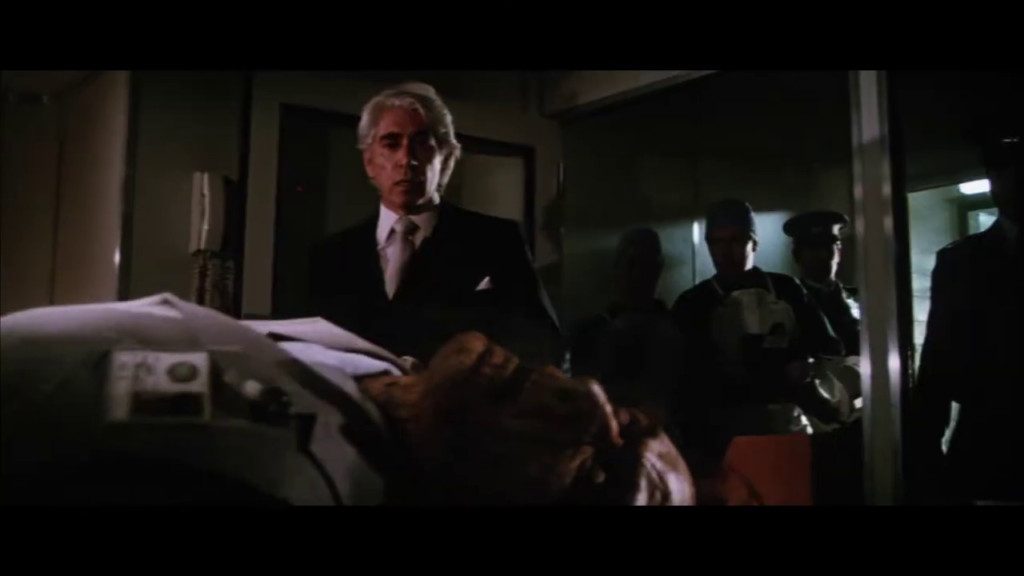
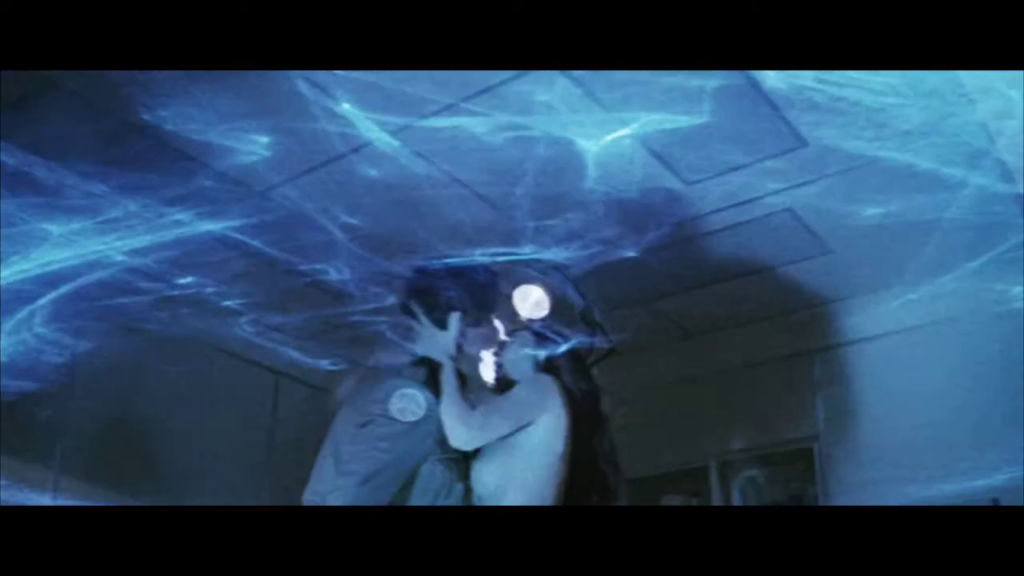
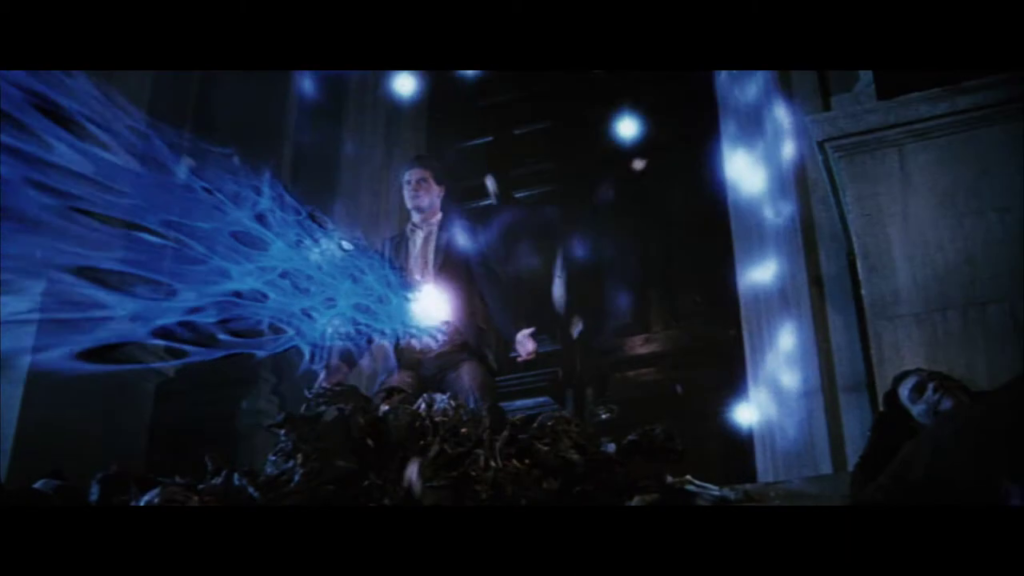
Lifeforce (1985)
Film review #599
Director: Tobe Hooper
SYNOPSIS: A space shuttle investigating Halley’s Comet finds a ship hidden in it’s wake. Inside they find three humanoid bodies, and bring them back to Earth. Upon arrival, Mission control gets no response, and send another shuttle to investigate. Aboard, they find the shuttle has been destroyed by a fire, and all that is intact is one of the preserved human bodies found on the alien ship. brought back to earth for study, the body wakes up and proceeds to start sucking the life out of people she encounters, setting off a chain effect that turns her victims into “vampire” like creatures that feed off others. Colonel Caine of the SAS joins forces with the sole survivor of the shuttle, who escaped via escape pod, to find the alien and stop her before she turns the human race into soul-sucking vampires…
THOUGHTS/ANSLYSIS: Lifeforce is a 1985 sci-fi film partly based on the novel The Space Vampires by Colin Wilson. A space shuttle investigating Halley’s comet finds a spaceship in its orbit, and aboard, they find three preserved humanoid bodies, which they decide back to Earth. When they are brought back by a second shuttle after the first one was mysteriously damaged and everyone aboard killed, the alien wakes up and starts sucking the life out of people, leading to a race against time to stop her before she infects everyone. Relying on a typical monster hunt with a sci-fi twist in the form of “space vampires,” the film wanders about through different locations and characters without too much direction other than stopping the monster. Everything is played quite low-key without theatrics (apart from a fair amount of female nudity), and the film revels in trying to create an eerie atmosphere more than anything else.
The film just keeps adding in more weird elements as it goes on, never stopping to really tie things together: there’s a feeling that the filmmakers just wanted to keep going after they could have stopped, turning it into a passion project of sorts. The flimmakers were given a bunch of money without much oversight and sent to make a movie, resulting in a film that you only really get with certain element of creative freedom. I like to call it the Zardoz effect: when a film has little to no oversight and creative juices just run wild, creating a product which never settles neatly into being a “good” or “bad” film, and refuses categorisation due to a certain restless creative energy. Lifeforce, to be clear, is nowhere near the brazen, lucid, fever dream that Zardoz is, but there’s just enough weirdness to make you think twice about how to judge it.
There’s not really much to the characters, although the performances are pretty good: the film relies more on atmosphere than stand out personalities. One part of the film which does leave an impression is the practical effects, with the scenes of people having their lifeforce sucked out and becoming deflated husks having that creepy horror vibe actually rather impressive, and a testament to the power of practical effects. Overall, Lifeforce takes the classic b-movie monster schtick and runs with it past its limits, and just revels in the thrill of making films. The result is difficult to judge in terms of good and bad: it’s just bizarre, although not enough to really make it stand out.
-
#598 – Meet Dave (2008)
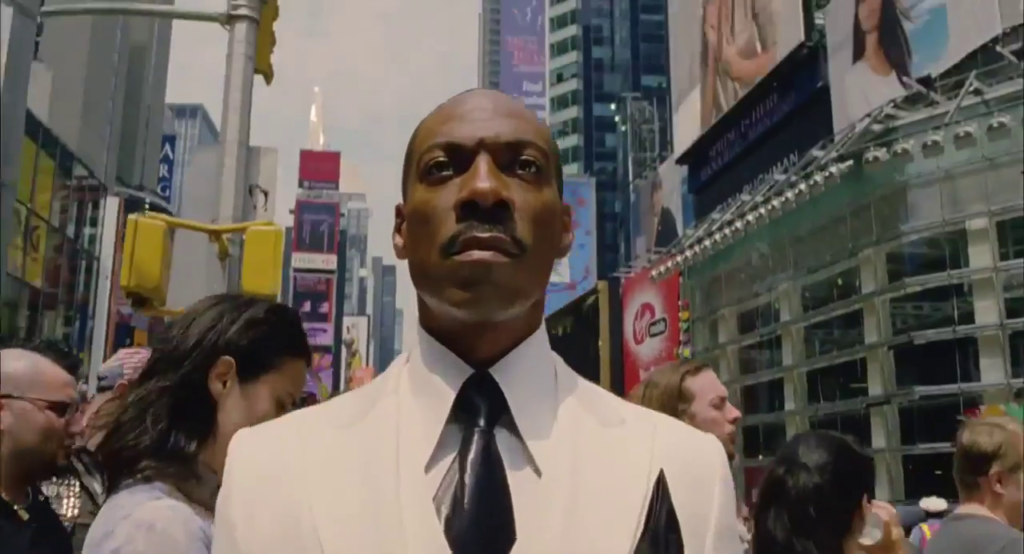
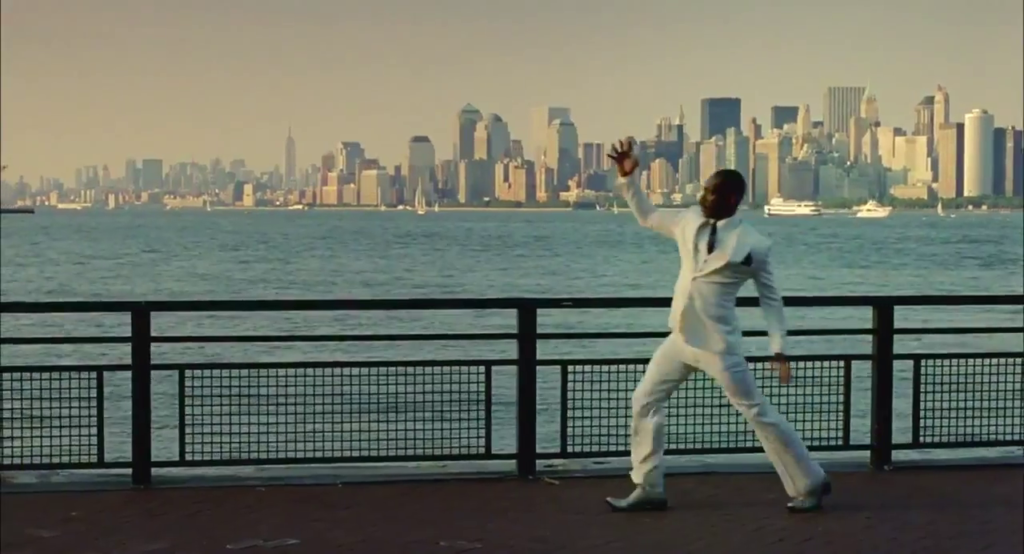
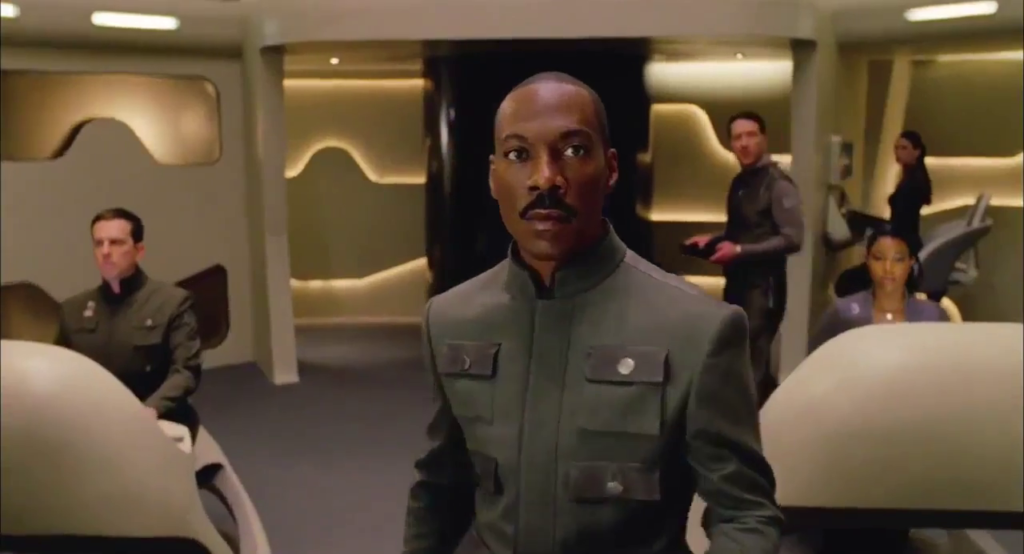
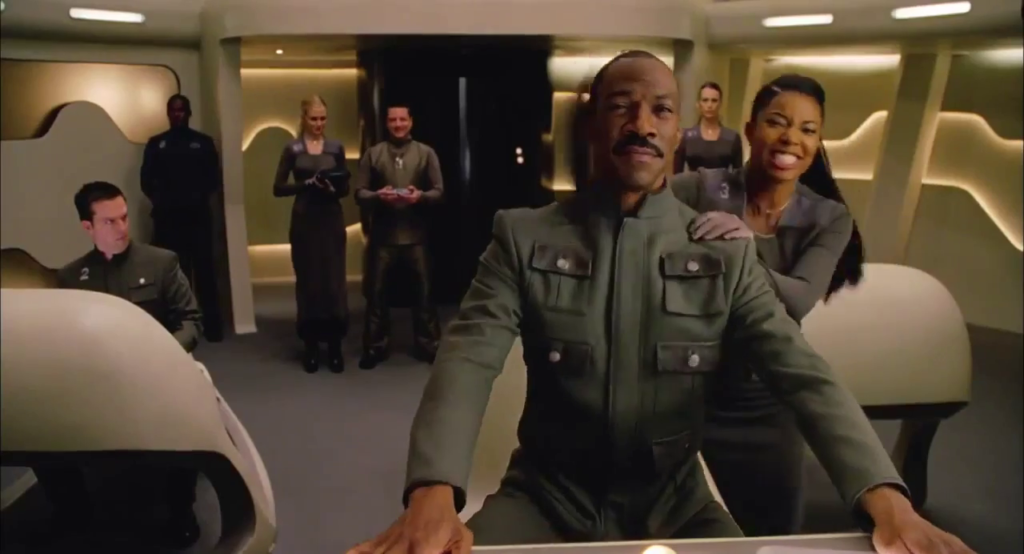
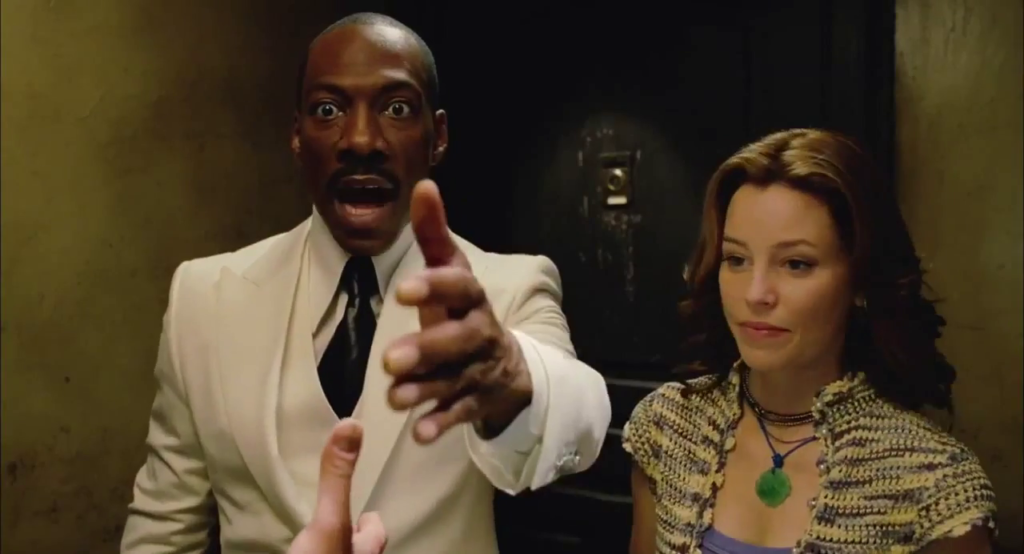
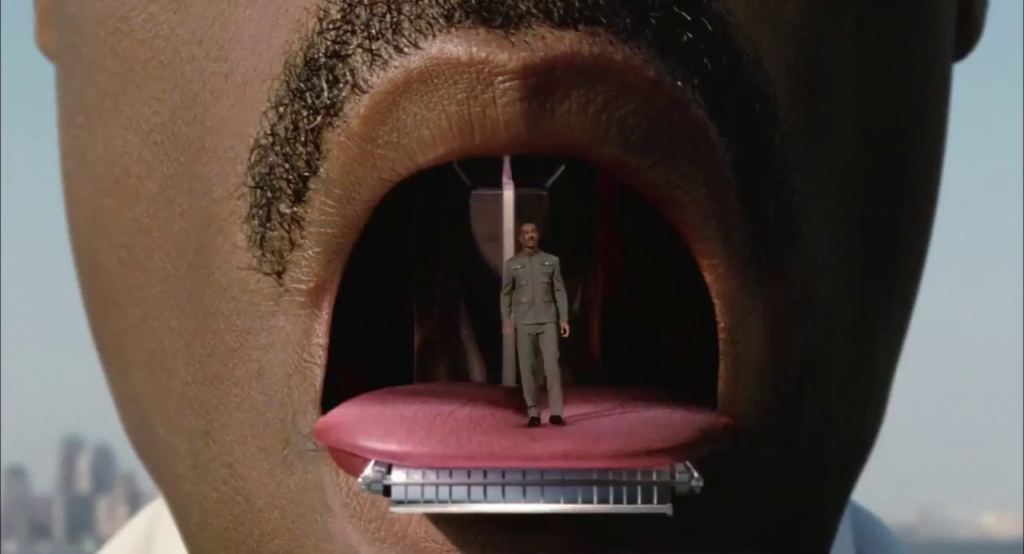
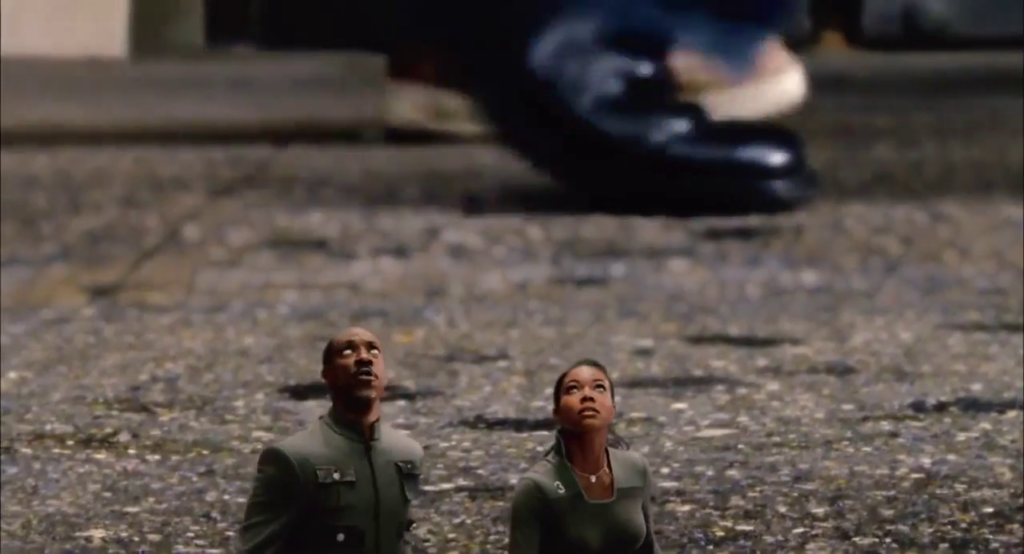
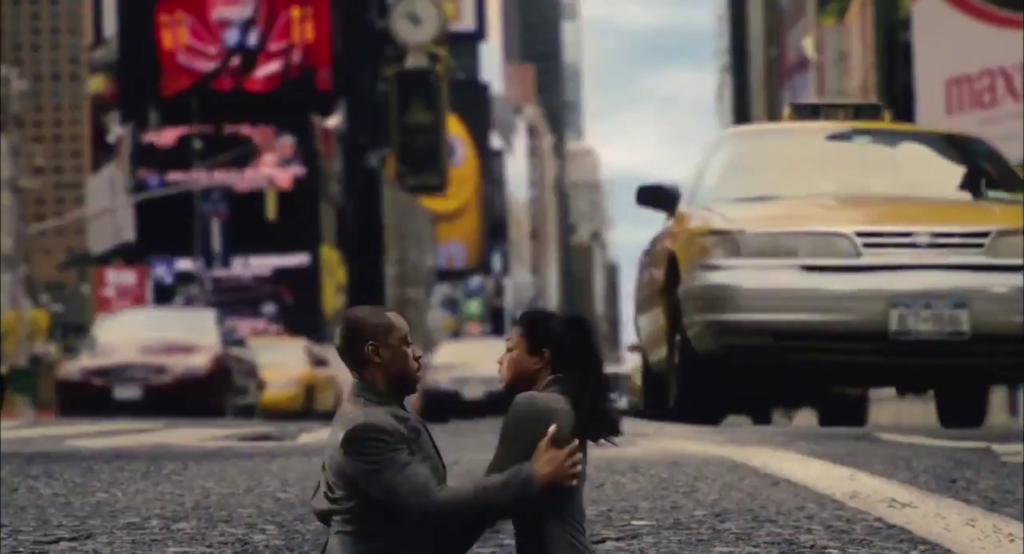
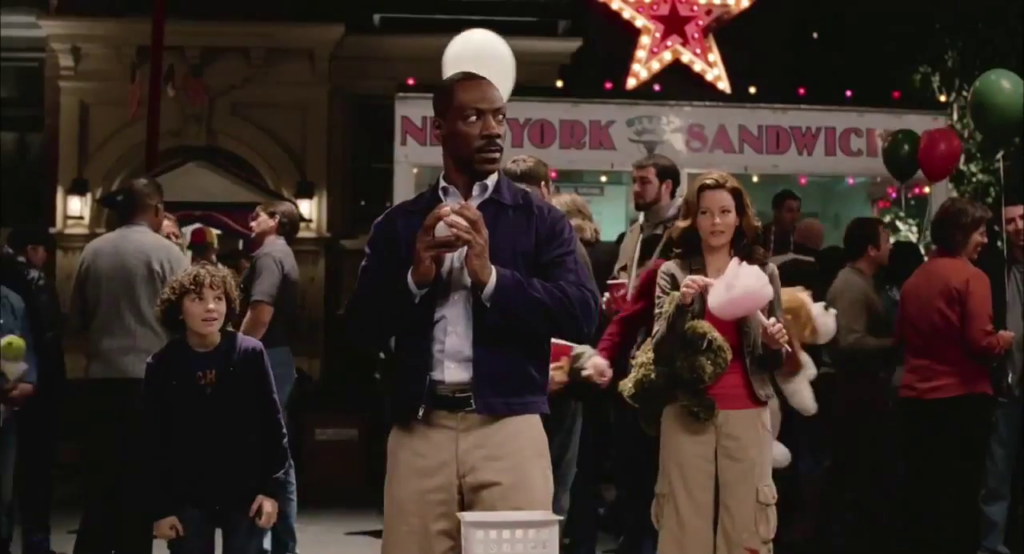
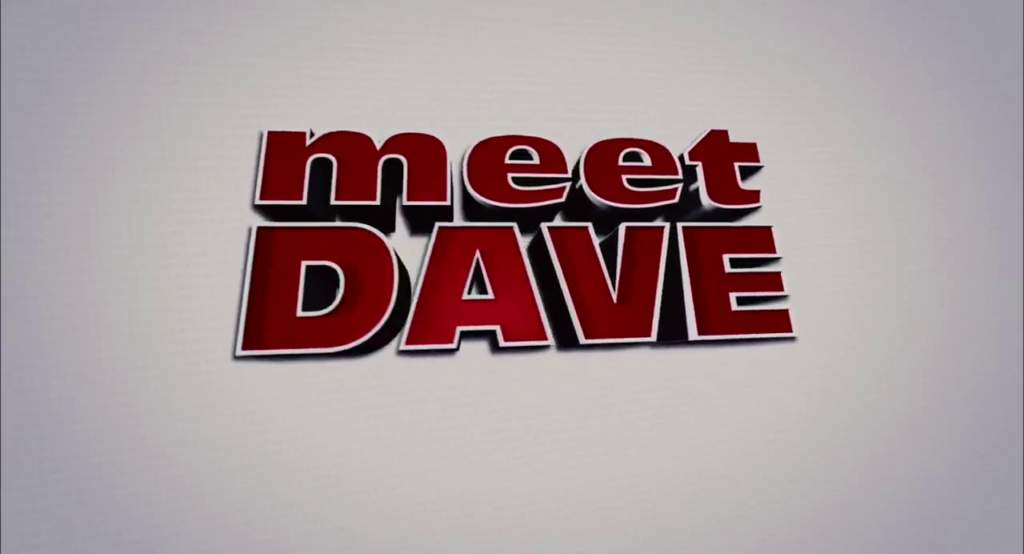
Meet Dave (2008)
Film review #598
Director: Brian Robbins
SYNOPSIS: An alien spacecraft in the shape of a human lands on Earth in search of a device that landed months earlier, that will drain the salt from the Earth’s oceans. Piloted by a crew of smaller humans (including the Captain who is the spitting image of their ship), they attempt to blend in with the crowds of New York City. Befriending a single Mother named Gina, the aliens learn about Earth and grow to admire it’s population. But as this threatens their mission to save their own planet at the expense of earth, not everyone is happy with this…
THOUGHTS/ANALYSIS: Meet Dave is a 2008 sci-fi comedy film starring Eddie Murphy. The film begins with a meteor falling to Earth and being found by a young boy. A few months later, a spaceship in the shape of a humanoid falls to Earth to look for the meteor, which is in fact a device to drain the Earth’s oceans of it’s salt. The ship is piloted by a crew of tiny humanoid aliens, including the Captain, whose image the ship is apparently based on, and the ship, attempting to blend in as a human, heads around New York City to find the meteor so that the aliens may save their own planet. Meeting Gina, a single Mother who accidentally hits “Dave” (as the crew refer to themselves), with her car, the two strike up a friendship and as the Captain learns more about the Earth, the less he is willing to sacrifice it to save his won world. The story is a very predictable affair, jumping from set piece to set piece that are each familiar and well worn in similar movies. Everything also feels very cartoon-ish, and unable to develop any depth. Gina’s friendship with Dave never expresses something more profound; in part due to her scatter-brained character, in part because I think the film maybe wanted a romantic element to it, but it never goes in that direction either. This is compounded by another issue I will mention later. There also just doesn’t seem to be any direction to the plot at all: sure, the aim is to recover this meteor, but it never feels like that is the primary concern. Even when it is recovered, the film just carries on doing things which don’t further the story or deepen the character’s relationships.
A lot of the film’s issues undoubtedly stem from the film being passed around a lot of different writers before it was finalised. Apparently, the film originally was going to be a bit more adult-oriented, but nowhere is this evident in the final version, which seems to just had every element neutered by the chain of writers that seem to have imagined the film for different audiences. Again, this leads to the film avoiding any sense of depth at any point, as the script tries to meet itself half-way at every possible point. The film is unable to create a significant connection between Dave and Gina, it resolves Josh’s “bully” problem in one quick scene, and the ending that romantically links Gina and her neighbour is something that more or less comes out of nowhere: there’s one brief scene prior to the ending that hints at a romantic connection, but it in no way builds itself up to be one of the take-aways of the film. We also know next to nothing about these aliens home world, culture or anything of the sort, which makes it difficult to understand just what they are getting from their experiences on Earth.
I suppose if you want a positive from this film, Eddie Murphy works well in the lead, given a fair amount of space to be his animated self. It’s just a shame the script doesn’t offer him much more. Gina (portrayed by Elizabeth Banks) is again animated and energetic, but her spritely aloofness renders her character a caricature unable of fathoming any emotional depth. Number Two as the villain is bland, ands again, because we nothing about these character’s backgrounds, it makes it difficult for them to stand out. Kevin Hart’s role as a kind of cutaway slapstick character is pointless: mostly because one; Eddie Murphy’s character has that role, and overshadows anything Hart does. Two, he clearly has no creative room to do anything interesting other than just scream a bit. If this was a more adult-oriented film, then maybe he could cut some more significant and risqué, but as it stands, he barely has anything to do. Production values are also fairly sloppy with some atrocious greenscreen effects for the time.
Eddie Murphy has been quoted as saying his role in Meet Dave is among the worst he has been in. It’s hard to disagree with that, although I don’t think it’s really his fault: the script has no direction, depth, or any idea who it’s aimed at, thanks to being shredded and blended by a mix of writer’s that results in a middle-of-the-road venture that doesn’t even try to stretch itself beyond that centre. It’s no offensively awful in any way, it’s just bad in the sense it’s unoriginal and uninspired, opting for safe, well-tested jokes and scenarios, ultimately wasting the talent it has on board.
-
#597 – Passengers (2016)
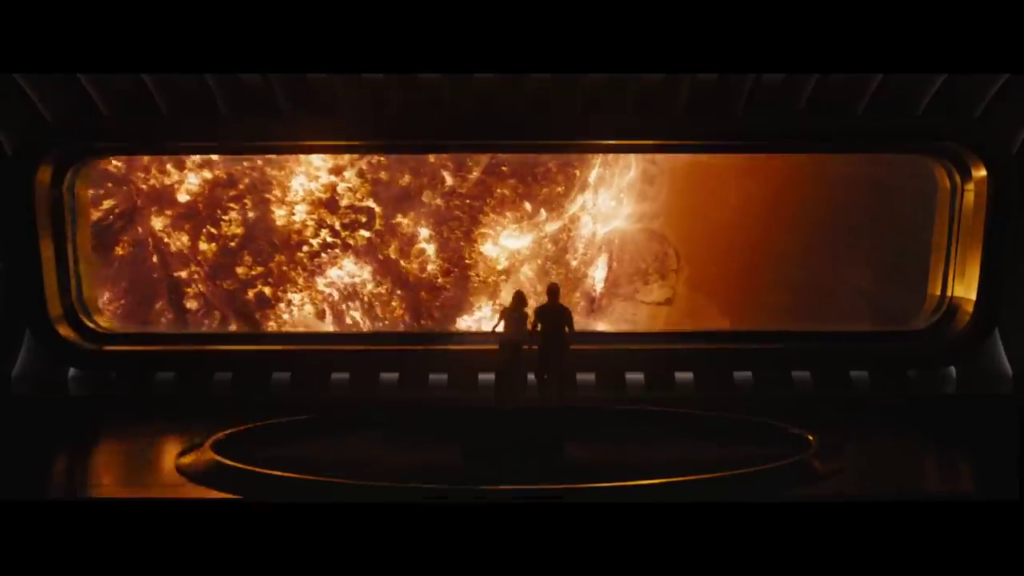
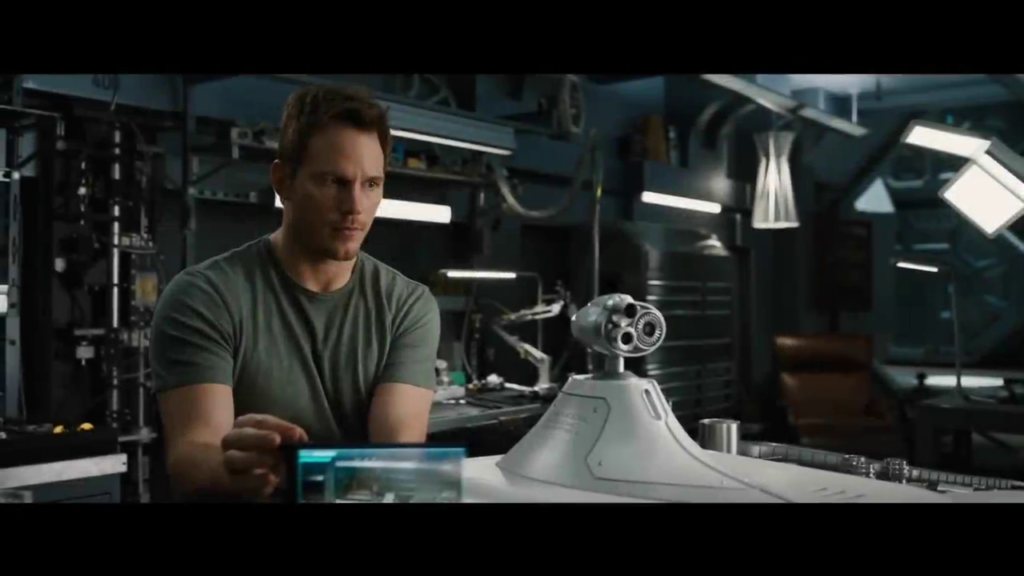
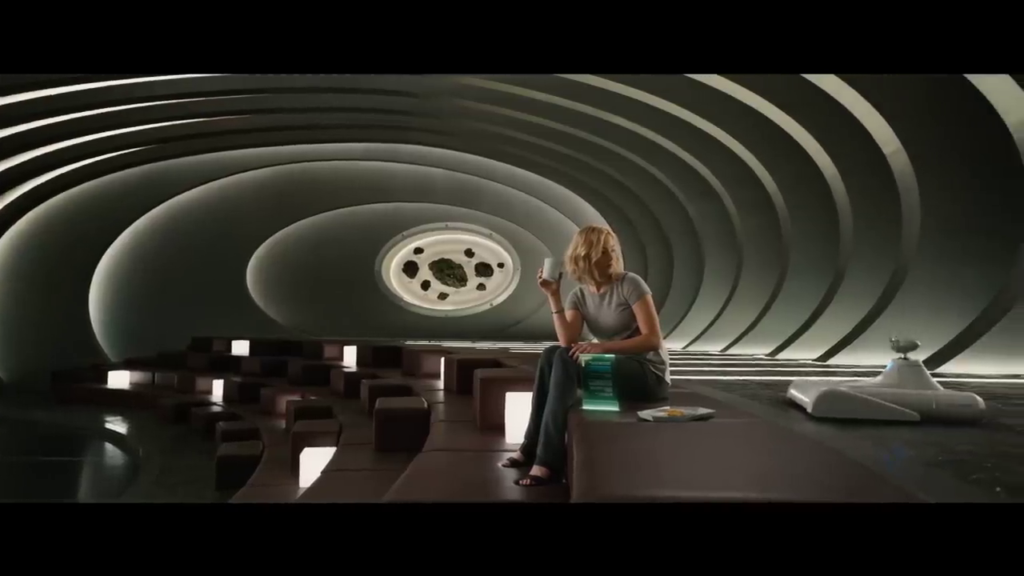
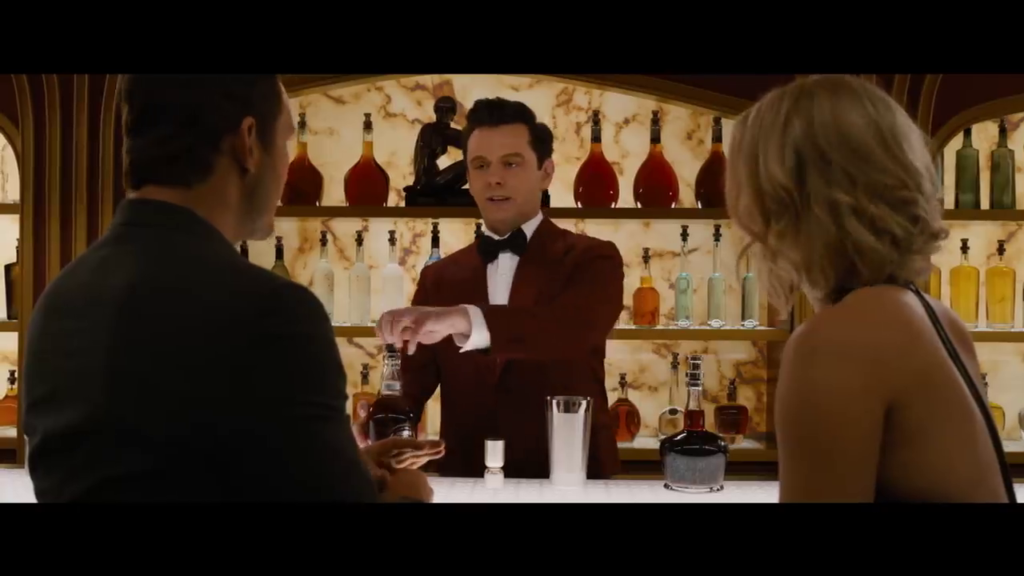
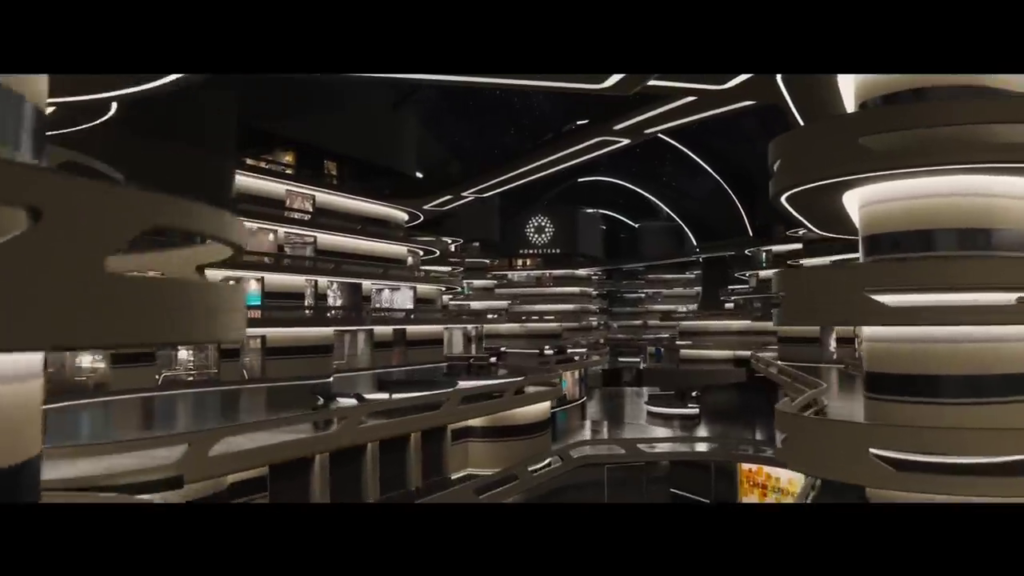
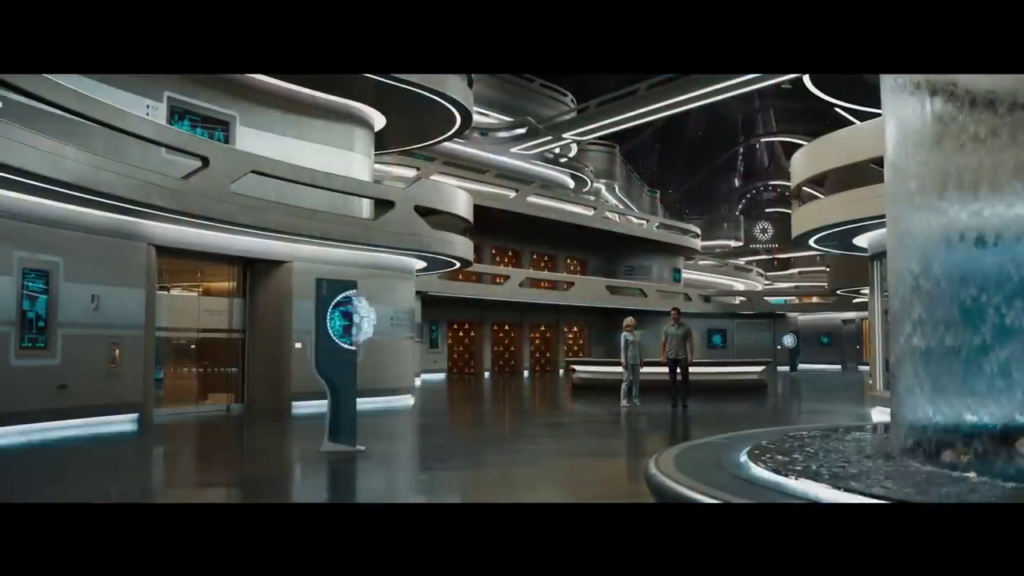
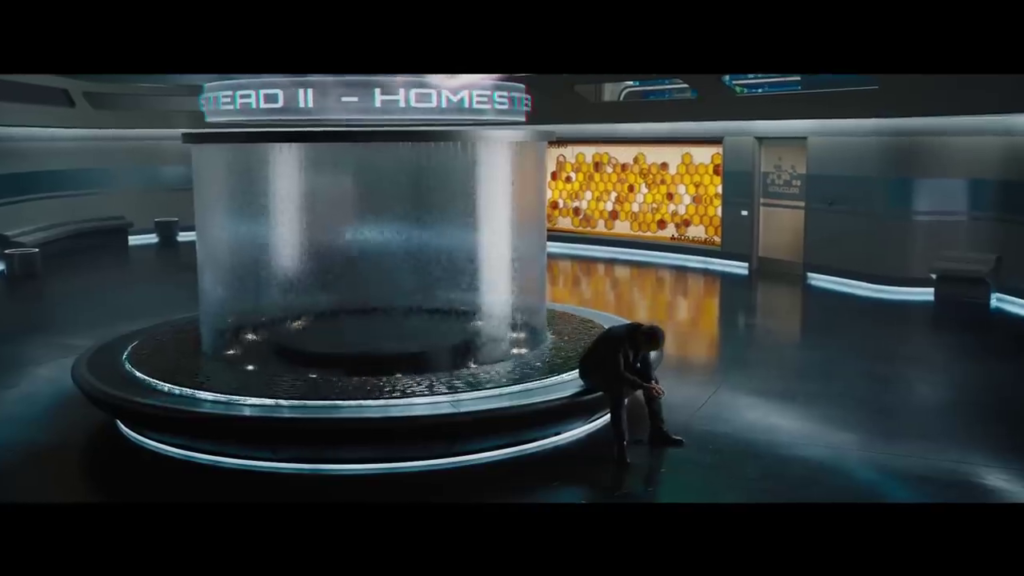
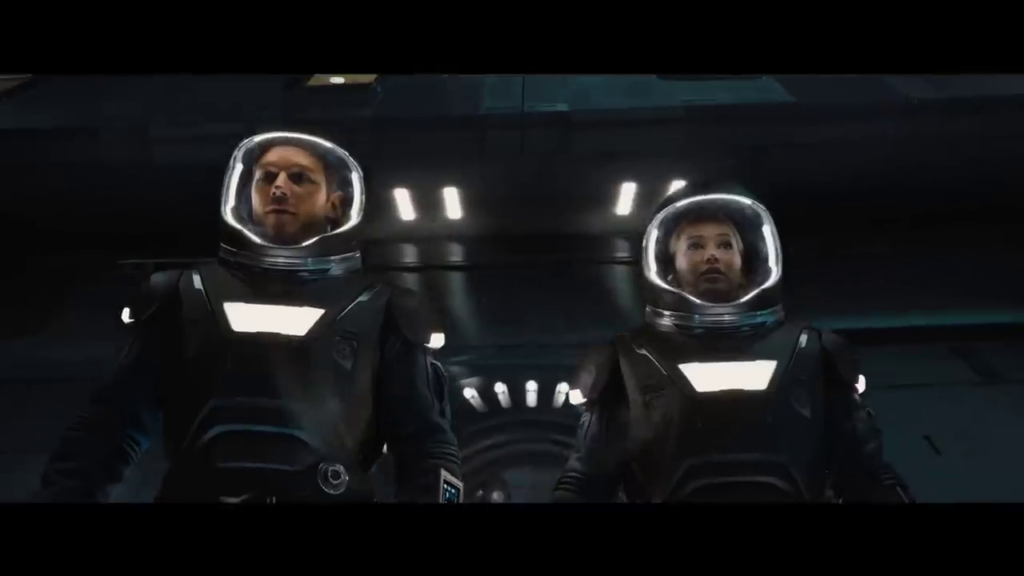
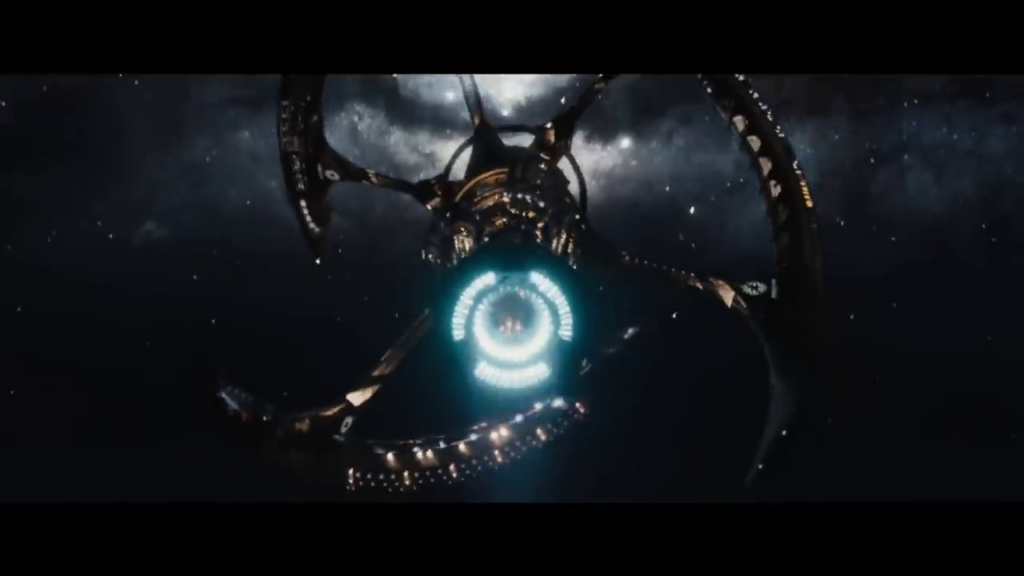
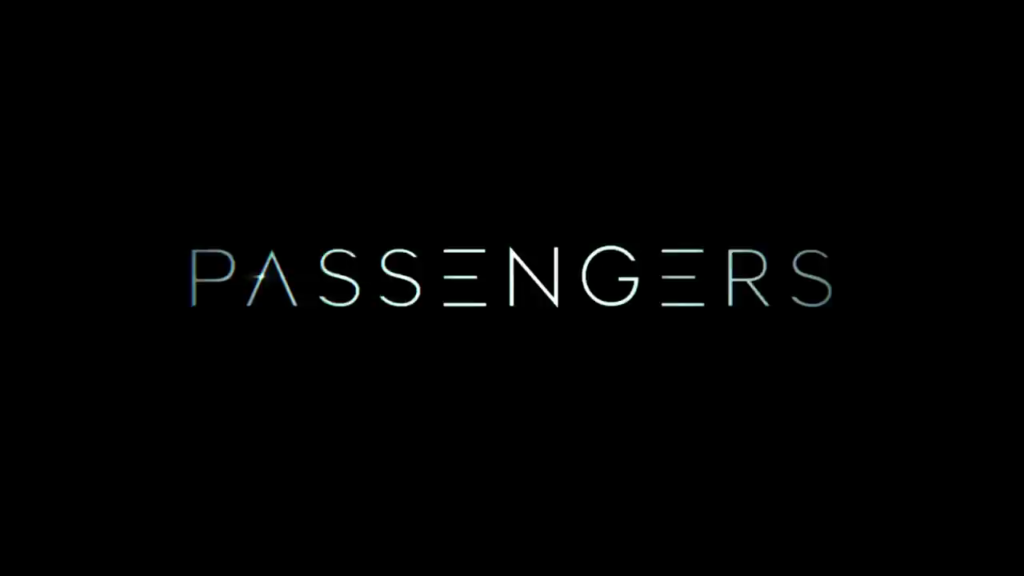
Passengers (2016)
Film review #597
Director: Morten Tyldum
SYNOPSIS: A Spaceship transporting colonists to a new planet is thirty years into it’s journey when Jim Preston is suddenly awakened from cryo sleep unexpectedly. being the only person woken up, and with ninety years to go until the voyage is complete, Jim spends a year alone, unable to return to sleep, until he, in desperation, releases another person, Aurora Lane, for companionship. However, the malfunction that woke Jim up threatens to extend to the entire ship, and the pair must work out what the problem is in order to save the lives of everyone aboard still in stasis…
THOUGHTS/ANALYSIS: Passengers is a 2016 sci-fi romance film. Set onboard a spaceship that is carrying its passengers and crew in cryogenic sleep on a one hundred and twenty year journey to a new planet. Thirty years into the journey, Jim Preston, a passenger, is suddenly awakened from sleep unexpectedly due to a malfunction. Unable to return to sleep or to wake anyone else up, he spends over a year by himself (apart from a robotic bartender for company), eventually becoming more and more depressed and desperate from company. In desperation, he wakes up another passenger, Aurora Lane, a writer who he has been learning about, lying about the fact that he woke her up and blaming on a malfunction instead. The story is focused on a romance story rather than anything else, offering very little novelty with the science-fiction element. The stand-out dilemma in this is clearly that Jim’s decision to wake up Aurora essentially condemns her to spend her life alone with him, without her consent. The film takes great steps to try and show both the desperation that Jim has for company, and the acknowledgement that what he is doing is wrong, but you can never shake the feeling that what Jim did was ultimately wrong. When the film tries to tie things up neatly with regards to the romance or just overlook that dilemma, it certainly lingers in your mind as a viewer when the film tries to move on.
Chris Pratt and Jennifer Lawrence turn in good performances in the lead roles, and the supporting roles of Martin Sheen and Laurence Fishburne also play their parts well. This is almost certainly one of those films that avoids going too hard on the science-fiction element, in fear of alienating the romance audience. Passengers really seems averse to explaining anything: the fact that the malfunction just so happens to wake up one ordinary person, then later wakes up a senior officer is all very convenient, and we don’t really get a sense of what is going on other than “things are broke, we need to fix them.” Critic’s response to the film blasted it for this lack of depth, but audience reception seems to be more favourable, as they were quite content with the simple story. I think that sums up the film fairly well: lacking in depth and nothing overly special, but easy to watch and mildly entertaining, even if predictable.
-
#595 – Contagion (2011)

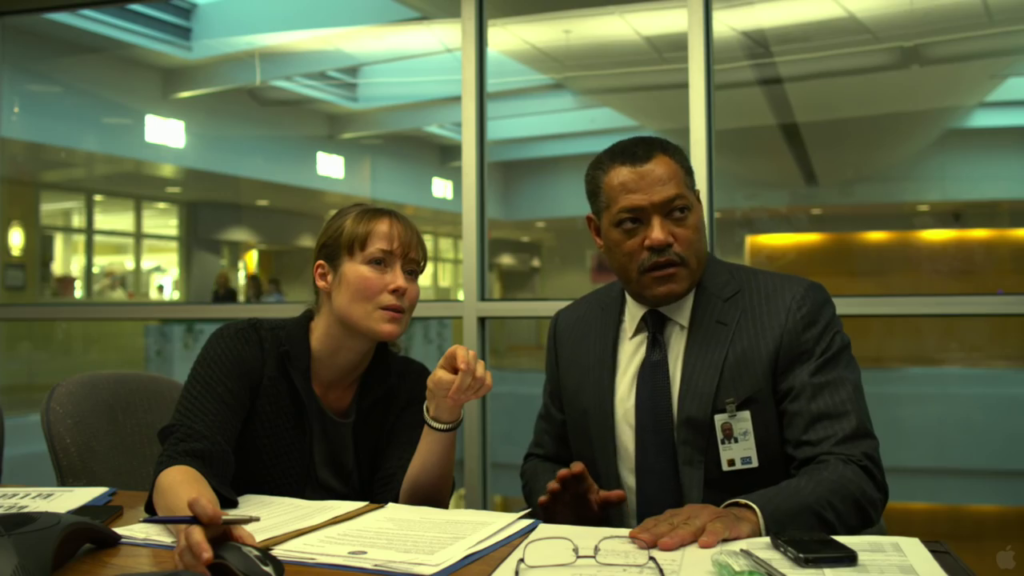
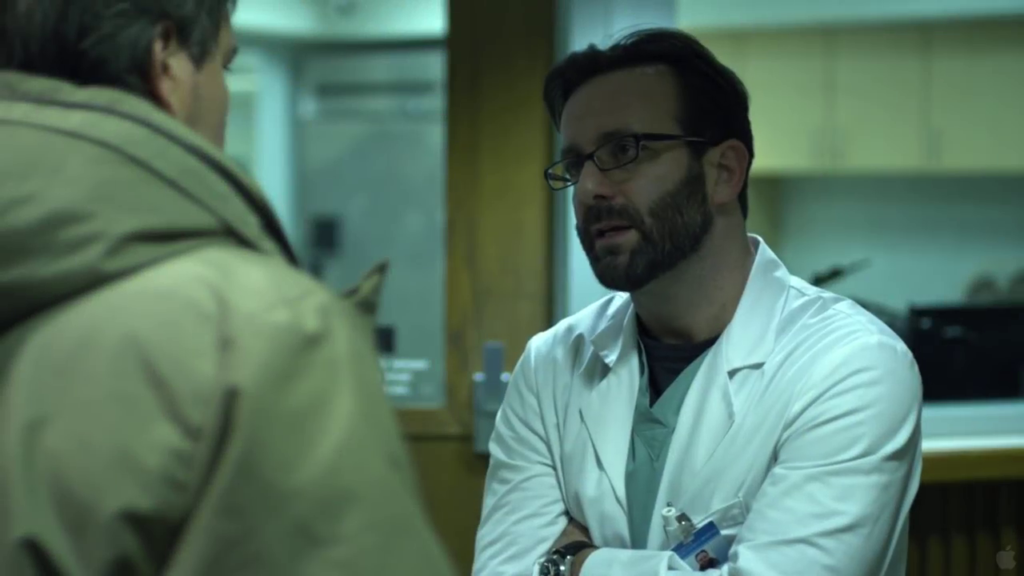

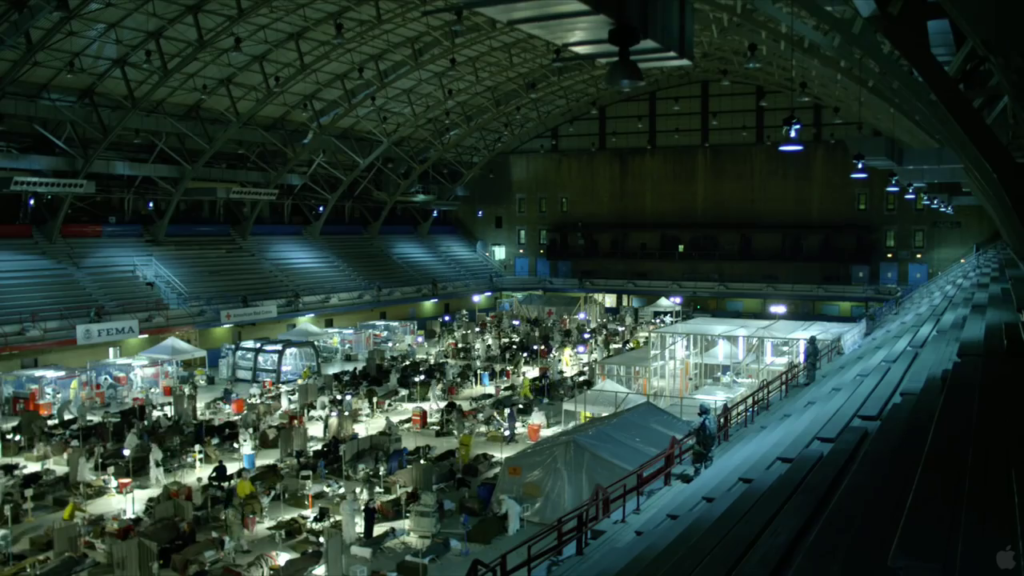
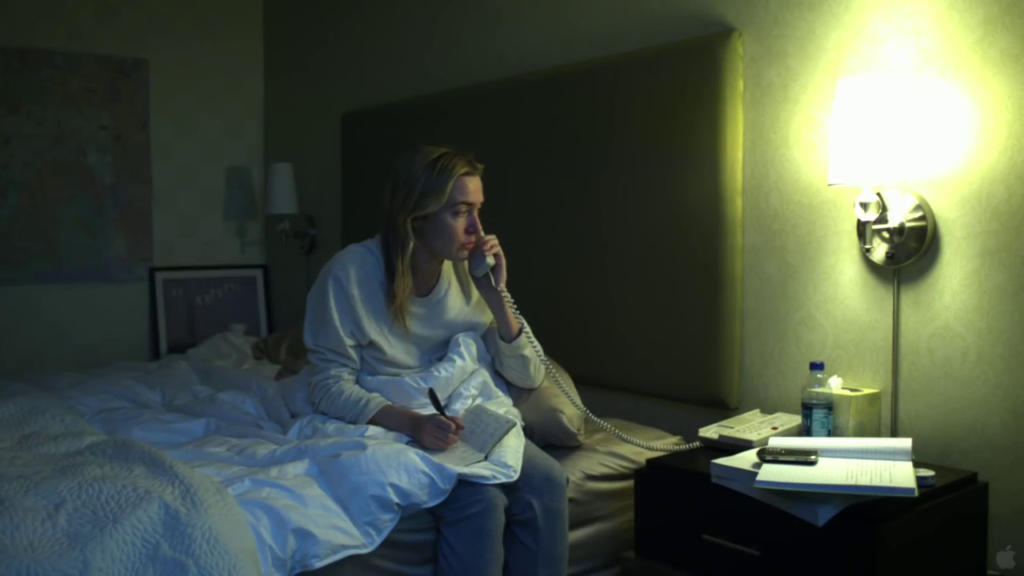
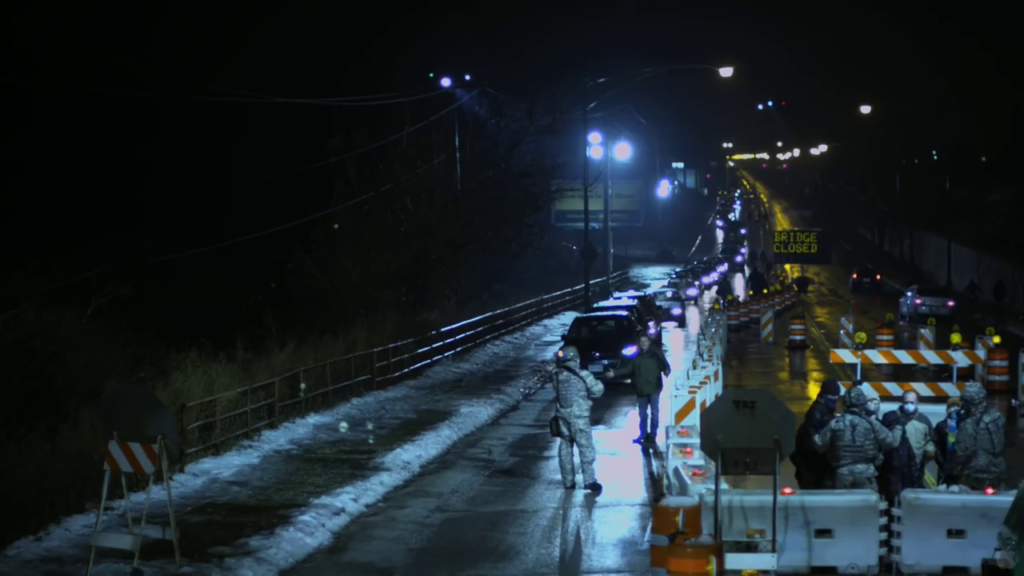

Contagion (2011)
Film review #595
Director: Steven Soderbergh
SYNOPSIS: A new virus originating in China quickly spreads around the world, leading to mass death and panic. As scientists struggle to develop a vaccine, the breakdown of social order and the rise of conspiracy theorists sets in, and the virus quickly spreads out of control…
THOUGHTS/ANALYSIS: Contagion is a 2011 science disaster film about a global pandemic, and the race to find a vaccine. Starting off in Hong Kong, the film tracks a number of characters as a mysterious virus infects and kills people around the world, resulting in a global pandemic. The core of the film follows the impact of the virus on the world’s population, but mostly on the scientists who are trying to develop a vaccine. We get a good look at a variety of perspectives in the film, although none really become the central focal point; as mentioned, each character offers their own perspective, without one taking precedence over the others. That said, there does feel like a bit of an imbalance, and some of the stories seem to be missing some scenes that would round off their particular narrative. Also, the film is very U.S. centric for a global pandemic, and we never get a sense of what is happening in other parts of the world other than the U.S. and China. On the whole though, the story is very tightly packed with different perspectives, and obviously the central plot point is the virus, not the personalities, so this narrative technique fits the film well.
I suppose it’s impossible to look back at this 2011 film now without comparing it in some way to the Covid-19 pandemic. There are a lot of similarities in the film: from the origins of the virus, a race for a vaccine, whining conspiracy theorists, social distancing, and the rate of reproduction. It’s perhaps easy to call it prophetic, but it’s actually a credit to the film’s attempt to create a ‘realistic’ scenario, and the amount of research undertaken by the director, working with real scientists to understand what they would do in the vent of a pandemic. So the film isn’t really prophetic, it’s just good research. However, it’s difficult to view the film as a “what-if” scenario when a lot of it became reality, and you’ll probably be constantly comparing it to what actually happened near ten years later. Whether this is to the film’s acclaim or detriment is up for debate. It should be noted that the ensemble cast do give a strong performance, so that’s something that allows the film to stand on it’s own. Overall, Contagion does what it sets out to do with researched precision that brings a speculative scenario to life. However, because of this, it’s proximity to actual events nearly a decade later might be a bit distracting.
-
#594 – Heart of a Dog (1976)
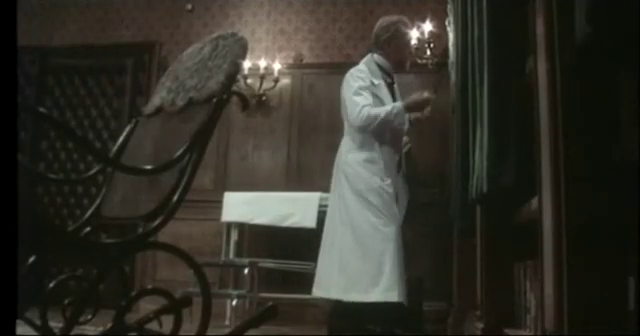

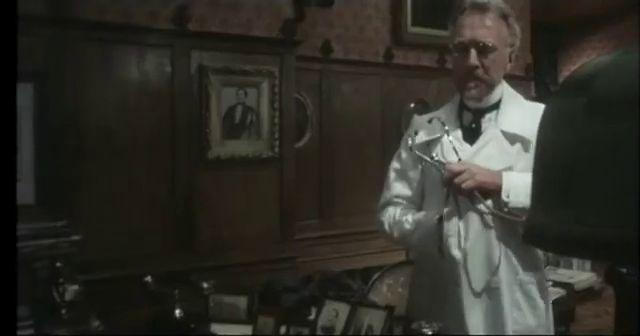

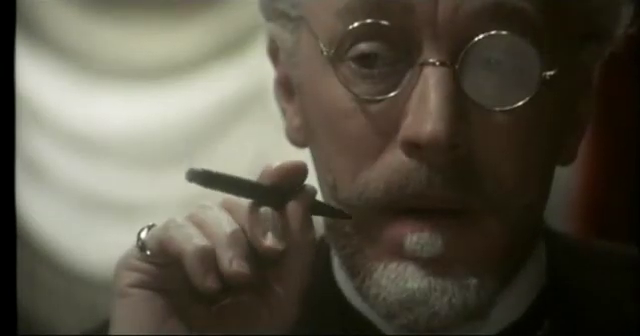
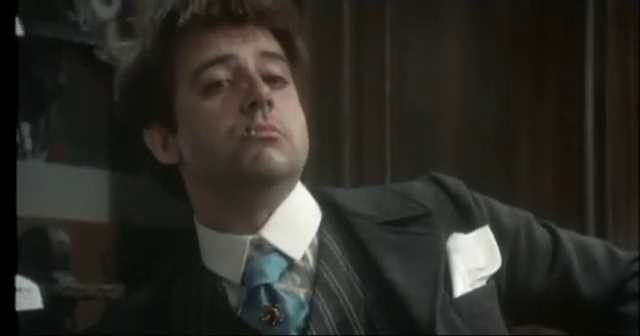
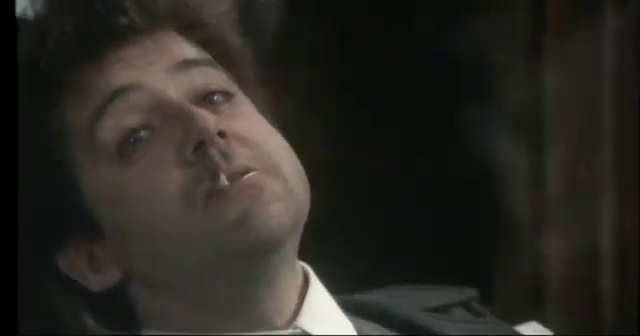
Heart of a Dog (1976)
Film review #594
Director: Alberto Lattuada
SYNOPSIS: A stray dog on the streets of Moscow is taken in by noted surgeon Professor Preobrazhensky, with the intent of using him in an experimental procedure to transform him into a human being. While the experiment is a success, Bobby, as the Professor has called him, quickly becomes an uncontrollable nuisance, leading to constant tension between him and the Professor…
THOUGHTS/ANALYSIS: Heart of a Dog is a 1976 Italian comedy film based on the 1925 novel of the same name by Mikhail Bulgakov. It is the first adaptation of the film, released while the novel was still banned in its native Soviet Union, and likewise before the release of the successful 1988 film adaptation made there. The story follows the novel fairly closely, with a stray dog being taken in by Professor Philip Philipovich Preobrazhensky, a surgeon who has been performing operations to transplant animal organs into humans to replace them. His next experiment involves the reverse: transplanting human body parts into a dog. The result is that the dog transforms into a human form, but unfortunately for the Professor, his subject’s views are vastly different than his own, setting up a classed-based conflict between the two. The story is fairly close to the novel, with only a few minor changes I noticed compared to the 1987 film, which is a very strict and accurate translation. The tone is perhaps a little lighter as it is geared to more of a comedic approach to the source material, but it still has a fair amount of grit to it in reflecting the state of the Soviet Union at the time. It’s never really laugh-out-loud funny, but you certainly get the point of the scenes and what they are satirising, without it biong too direct and literal.
The main issue with this film is actually nothing to do with the film itself: it captures the beats of the novel and its message fairly well. The problem is it just can’t compete with the version made in the Soviet Union ten years after this version: the whole point of the film relies so much on the time and place it was set, and an Italian/German co-production will never be able to compete. An issue with the film itself is that the latter half doesn’t really have too much of a direction, and is just scenes of Bobby and Philip arguing with one another about different things. The performances, including Max Von Sydow as the Professor are good, But again, in a choice between this version and the 1987 version, you’ll always choose the latter. This 1976 version does everything it needs to do, but without that context of being set in the Soviet Union and being made by those who understand and lived through the source material, this version will always come up short.
-
#593 – Heart of a Dog (1988)
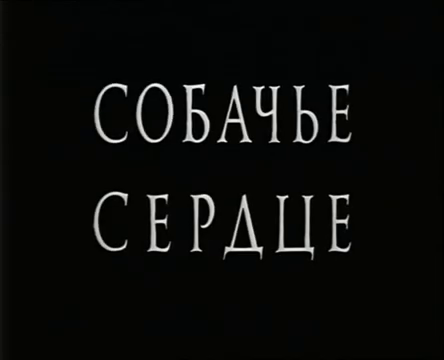
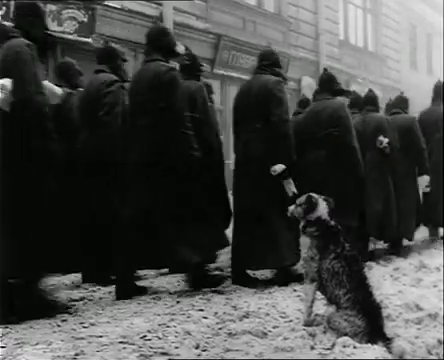

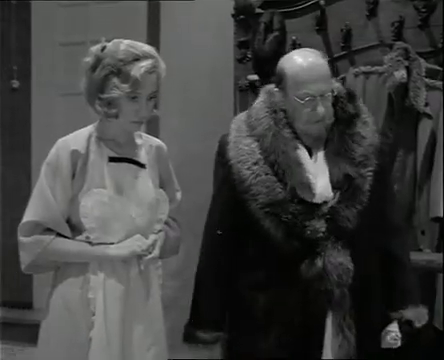
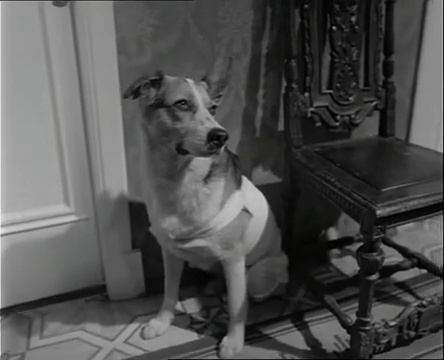
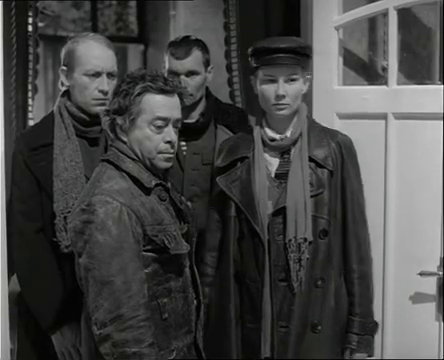
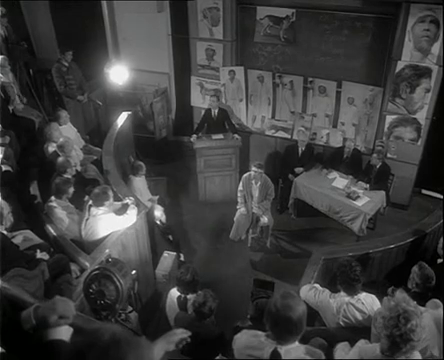
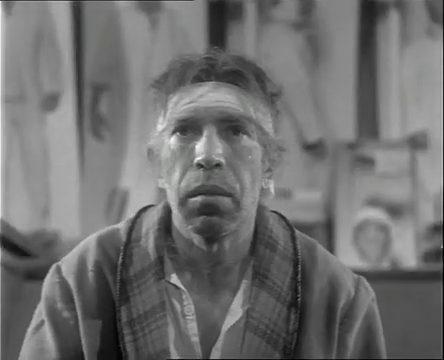
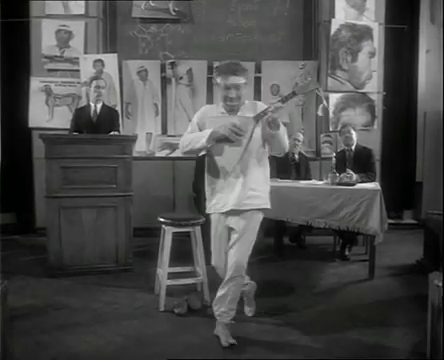
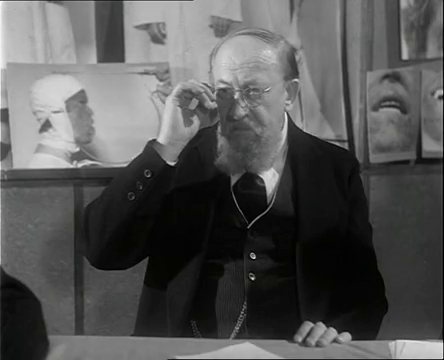
Heart of a Dog (1988)
Film review #593
Director: Vladimir Bortko
SYNOPSIS: A stray dog living on the streets of Moscow not long after the October Revolution is taken in by a surgeon. However, the surgeon intends to use the dog as part of an experimental procedure to turn him into a human being, transferring the pituitary gland and testicles of a recently deceased man into the canine. The experiment becomes a success and the dog becomes almost human, but he is not the person that the Professor intends him to be, and their differences start to quickly show…
THOUGHTS/ANALYSIS: Heart of a Dog is a 1988 film based on the 1925 book of the same name by Mikhail Bulgakov. The book was rejected for publication in the Soviet Union due to its allegorical critique of the communist revolution. The book was eventually released in 1987, and quickly became a phenomenon in the Soviet Union, which was now moving away from the communist practices through its reforms. This made-for-TV movie was released a year later to similar applause. In the beginning, we see a stray dog wandering the streets, hungry and alone, and his situation does not seem much better than the regular people on the streets, making the point that people’s lives did not really get much better for ordinary people after the October Revolution. The beginning of the film is bleak, make no mistake, but this again is by design, and you’ll need to stick with it if you want the tone to change. The dog, named Sharik, is found by a bourgeois Professor and surgeon named Philip Philippovich Preobrazhensky, and he takes him home. However, Philip has plans for the dog in an experimental new procedure in which he will transplant the pituitary gland and testicles of a recently dead man into the dog to observe its effects. What occurs is the dog starts to slowly morph into a human in a scientific breakthrough. The results of this, though, are that Sharik is far from the bourgeois Philip in terms of his behaviour and mannerisms, setting up humourous and allegorical conflict between the two. The science-fiction element of the film is not really the focus of the plot, but rather again serves as an allegorical device for the author’s criticisms of class and revolution.
One key thing to note about the film is that it is deeply entrenched in the time and place it was written: if you have no idea about the Soviet Union, the October Revolution, and the like, a vast chunk of this film is going to pass you by. Professor Philip, an ‘enlightened’ bourgeois is horrified as Sharik turns out to be a worker (which perhaps shouldn’t be surprising as he is/was a stray dog), but as this enlightened individual, never considers violence as an option, lest he become like the proletariat he dislikes so much. As mentioned, the original novel is more critical of the workers and their revolution, and pokes fun at them also, with their committees and constant need to break into songs about the revolution at every given opportunity. No one really escapes being poked fun of in the film, but again, it’s all very much rooted in the time and place it is set, so those outside of it aren’t going to get all of the small references and critiques.
This film is noted for its faithful adaptation of the original novel: it leaves nothing out, and only changes a few small details. The acting is solid, and the characters, while obviously exaggerated versions of the class archetypes they are meant to represent, don’t stray to far into being cartoonish, allowing the film to retain a sense of realism and relatability. Likewise, the comedy is drawn out through the character’s being constantly at odds at each other, and their own ideologies being their undoing, rather than a laugh-out-loud type of humour. In terms of production, the acting is solid, even the dog is played by an “acting dog” who had played in numerous films. Everything about the production is professional, and it’s difficult to find any significant flaws in the film as a whole. The enjoyment of Heart of a Dog certainly depends on how much you know about the context and setting of the film: there’s so many slight references and nuanced moments that entrench it so deeply in the early days of the Soviet Union, but the larger beats of the film do have enough for unfamiliar viewers to latch onto, and a high-quality production overall makes it an interesting and enjoyable film.
